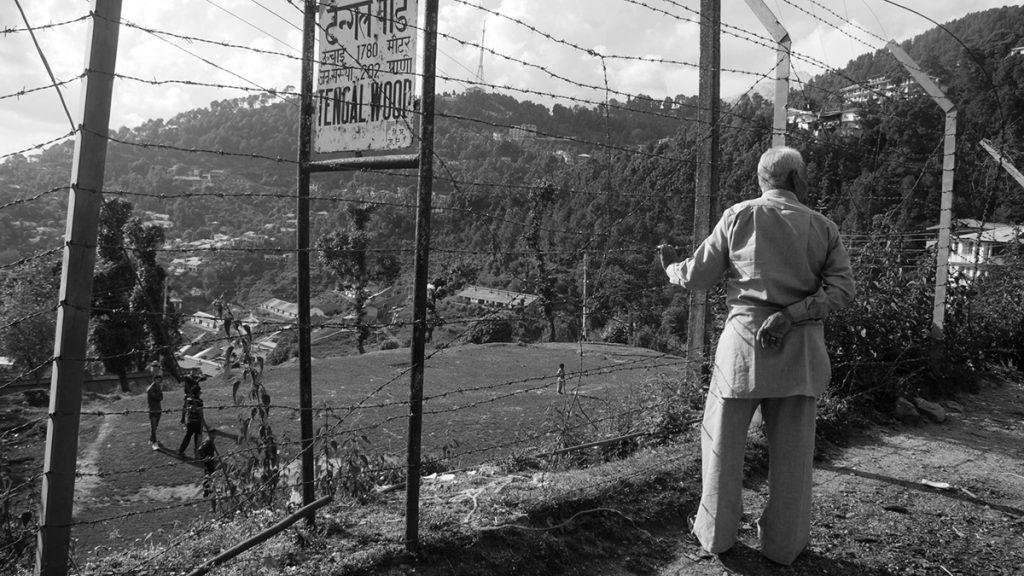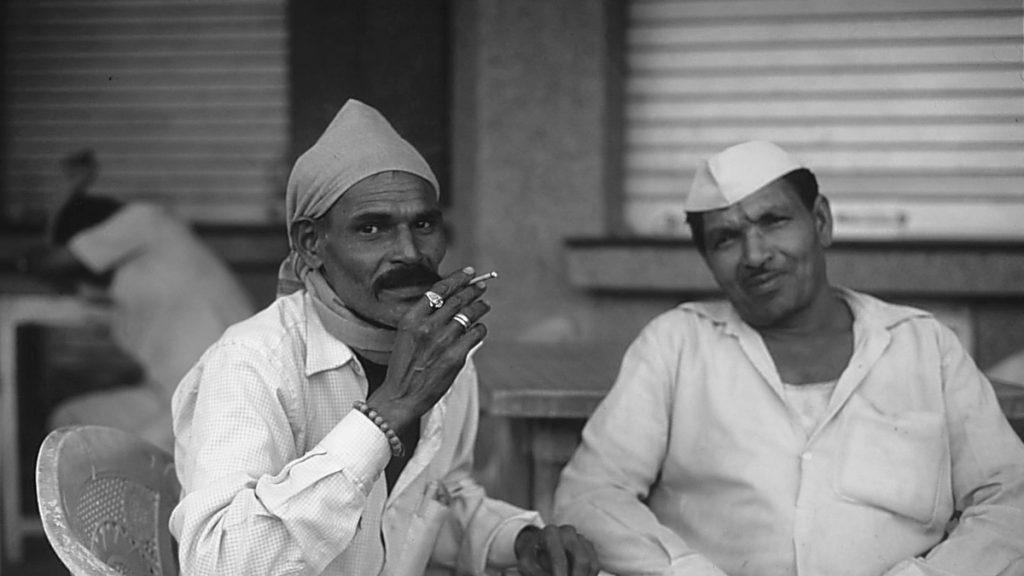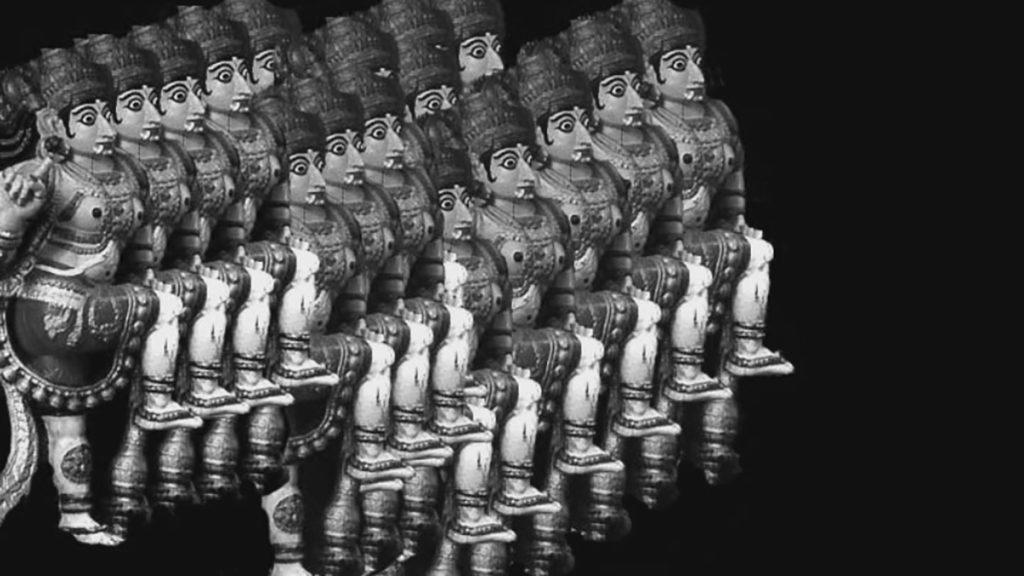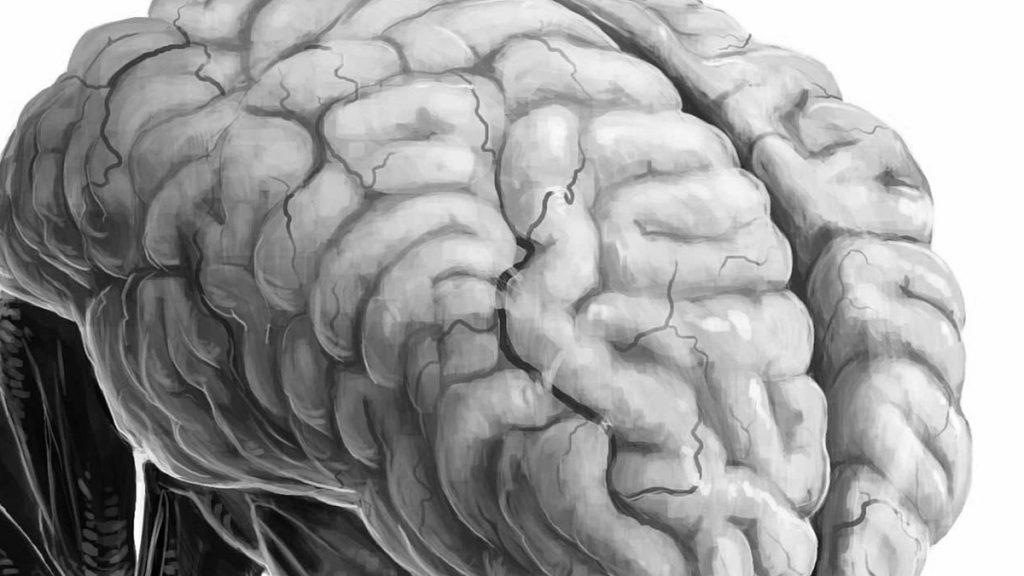LITERATUR
AHIMSA ALS KOSMOPOLITISCHE HALTUNG
- Antweiler, Christoph (2010): Mensch und Weltkultur: Für einen realistischen Kosmopolitismus im Zeitalter der Globalisierung, transcript.
- Appiah, Kwame Anthony (2009): Der Kosmopolit. Philosophie des Weltbürgertums, C. H. Beck.
- Appiah, Kwame Anthony (2019): Identitäten. Die Fiktionen der Zugehörigkeit, Hanser.
- Arendt, Hannah (1958): Vita Activa oder vom tätigen Leben, Piper, 2007.
- Arendt, Hannah (1951): The Origins of Totalitarianism, Penguin, 2017.
- Atack, Iain (2012): Nonviolence in Political Theory, Edinburgh University Press.
- Balibar, Etienne (2018): Secularism and Cosmopolitism (European Perspectives), Columbia University Press.
- Balibar, Etienne (2006): Der Schauplatz des Anderen: Formen der Gewalt und Grenzen der Zivilität, Hamburger Edition.
- Beck, Ulrich (2008): Der eigene Gott. Friedensfähigkeit und Gewaltpotential der Religionen, Insel Verlag.
- Beck, Ulrich (2005): Cosmopolitan Vision, Polity.
- Benhabib, Seyla (2006): Hannah Arendt. Die melancholische Denkerin der Moderne, Suhrkamp.
- Benhabib, Seyla (2016): Kosmopolitismus ohne Illusionen, Suhrkamp.
- Brocker, Manfred (2006): Geschichte des politischen Denkens, Suhrkamp.
- Broszies, Christoph (2010): Globale Gerechtigkeit: Schlüsseltexte zur Debatte zwischen Partikularismus und Kosmopolitanismus, Suhrkamp.
- Butler, Judith (1990): Das Unbehagen der Geschlechter, Suhrkamp, 1991.
- Butler, Judith (2020): Die Macht der Gewaltlosigkeit, Suhrkamp, 2021.
- Butler, Judith (1993): Körper von Gewicht: Die diskursiven Grenzen des Geschlechts, Suhrkamp 1995.
- Cassee, Andreas: Globale Bewegungsfreiheit. Ein philosophisches Plädoyer für offene Grenzen, Suhrkamp, 2016.
- Chakrabarty, Dipesh (2000): Cosmopolitanism (a Public Culture Book), Duke University Press Book.
- Chakrabarty, Dipesh (2018): The Crises of Civilisation: Exploring Global and Planetary Histories, OUP India.
- Chakrabarty, Dipesh (2000): Europa als Provinz. Perspektiven postkolonialer Geschichtsschreibung, Campus Verlag, 2010.
- Chaniotis, Angelos (2019): Die Öffnung der Welt. Eine Globalgeschichte des Hellenismus. wbg Theiss.
- Derrida, Jacques & Vattimo, Gianni: (2001) Die Religion, Suhrkamp.
- Dietrich, Frank (2017): Ethik der Migration: Philosophische Schlüsseltexte, Suhrkamp, 2017.
- Eco, Umberto (2020): Der ewige Faschismus, Hanser.
- Fanon, Frantz (1952): Black Skin, White Mask, Grove Press, 2008.
- Fassin, Didier (2019): Time for a Critique, Columbia University Press.
- Fine, Robert (2007): Cosmopolitism (Key Ideas), Routledge.
- Girshovich, Joseph (2014): Weltbürgertum, Kosmopolitismus und der Leviathan, Berliner Wissenschaftsverlag.
- Godrej, Farah (2011): Cosmopolitan Political Thought, Oxford University Press.
- Graswurzelrevolution (2000): Das andere Indien. Anarchismus, Frauenbewegung, Gewaltfreiheit, Ökologie, Graswurzel-revolution Verlag.
- Haddad, Samir (2013): Derrida and the Inheritance of Democracy, Indiana University Press.
- Heinsohn, Kirsten & Lachenicht, Susanne (2009): Diaspora Identities. Exile, Nationalism, and Cosmopolitanism in Past and Present, Campus.
- Held, David (2010): Cosmopolitanism: Ideals and Realities, Polity Press.
- Kant, Immanuel (1785): Werke: Akademie Textausgabe, Bd.6, Die Religion innerhalb der Grenzen der Bloßen Vernunft; Die Metaphysik der Sitten, DeGruyter, 1968.
- Kleingeld, Pauline (2012): Kant and Cosmopolitism. The Philosophical Ideal of World Citizenship, University of Groningen, the Netherlands, Cambridge University Press.
- Kurlansky, Mark (2008): Nonviolence. The History of a Dangerous Idea, Vintage Digital.
- Loeffler, James Benjamin (2018): Rooted Cosmopolitans: Jews and Human Rights in the Twentieth Century, Yale University Press.
- Miller, Caleb, R. (2020): Living under Post-democracy. Citizenship in Fleetingly Democratic Times, Routledge.
- Miller, David (2017): Fremde in unserer Mitte. Politische Philosophie der Einwanderung, Suhrkamp.
- Mbembe, Achille (2017): Kritik der schwarzen Vernunft, Suhrkamp.
- Naas, Michael (2012): Miracle and Machine: Jacques Derrida and the Two Sources of Religion, Science and the Media, Fordham University Press.
- Nancy, Jean-Luc (2014): Corpus, Diaphanes.
- Nussbaum, Martha C. (2020): Kosmopolitismus. Revision eines Ideals. Philosophischer Essay, wbg Theiss in Wissenschaftliche Buchgesellschaft, WBG.
- Orwell, George (1945): Über Nationalism, dtv, 2020.
- Robbins, Bruce (1997): Cosmopolitanism, New York University Press, 2017.
- Scheler, Max (1963): Die Stellung des Menschen im Kosmos, Edition Holzinger, 2015.
- Schink, Philipp (2017): Freiheit: Zeitgenössische Texte zu einer philosophischen Kontroverse, Suhrkamp.
- Sennett, Richard (1991): Civitas. Die Großstadt und die Kultur des Unterschieds, Hanser.
- Sennett, Richard (2018): Die offene Stadt. Eine Ethik des Bauens, Hanser.
- Skrbis, Zlatko (2013): Cosmopolitanism: Uses of the Idea, Sage Publications.
- Tagore, Rabindranath (1917): Nationalismus, Berenberg Verlag, 2019.
- Tolstoy, Leo (1908): Brief an einen Hindu, Gandhi Informationszentrum, 1997.
- Trepanier, Lee & Habib, Khalil M. (ed.) (2011): Cosmopolitanism in the Age of Globalisation. Citizens without States, University Press of Kentucky.
- Vordermayer, Verena (2009): Identitätsfalle oder Weltbürgertum? Zur politischen Grundlage der Migranten-Identität, C. H. Beck.
- Waldschmidt-Nelson, Brigitte (2000): Gegenspieler: Martin Luther King. Malcolm X, Fischer Verlag.

AHIMSA IN PATANJALIS YOGA SUTRA
- Altman, Nathaniel (2017): The Nonviolent Revolution. A Comprehensive Guide to Ahimsa – The Philosophy and Practice of Dynamic Harmlessness, Guapo Publishing.
- Aranya, Swami Hariharananda (1968): Yoga Philosophy of Patañjali, State University of New York Press.
- Butler, Judith (2020): Die Macht der Gewaltlosigkeit, Suhrkamp, 2021.
- Desikachar, T.K.V. (2006): Über Freiheit und Meditation. Das Yogasutra des Patañjali, Via Nova.
- Desikachar, T.K.V. (2005): Yoga – Tradition und Erfahrung. Die Praxis des Yoga nach dem Yoga Sutra des Patañjali, Via Nova.
- Desmarais, Michelle Marie (2008): Changing Consciousness and Identity in Patañjali’s Yoga-Sutra, Motilal Banarsidass.
- Iyengar, B.K.S. (2010): Der Urquell des Yoga: Die Yoga-Sutras des Patañjalis, O.W. Barth.
- Iyengar, B.K.S. (2002): Light on the Yoga Sutras of Patañjali, Harpercollins Publishers.
- Kak, Subhash (2016): Mind and Self: Patañjalis Yoga Sutra and Modern Science, Mt. Meru Publishing.
- Maehle, Gregor (2007): Ashtanga Yoga: Practice and Philosophy, New World Library.
- Mehta, Rohit (2011): Yoga: The Art of Integration – A Commentary on the Yoga Sutras of Patañjali, The Theosophical Publishing House.
- Rajneesh, Bhagwan Shree / Osho (1981), Yoga: Alpha und Omega. Über Patañjalis Sutra, Osho International Fondation.
- Rosenberg, Marshall, B (2012): Konflikte lösen durch Gewaltfreie Kommunikation. Ein Gespräch mit Gabriele Seils, Herder.
- Saraswati, Swami Niranjanananda (2017): Mind, Mindmanagement and Raja Yoga, Yoga Publication Trust.
- Saraswati, Swami Satyananda (2006): Four Chapters on Freedom: Commentary on Yoga Sutras of Patañjali, Bihar School of Yoga.
- Sriram, R. (2009): Patañjali. Das Yogasutra. Von der Erkenntnis zur Befreiung, Theseus.
- Vivekananda, Swami: Sacred Texts: The Yoga Sutras of Patañjali, Watkins Publishing, 2007.
- Wolz-Gottwald, Eckhart (2014): Die Yoga-Sutras im Alltag leben. Die philosophische Praxis des Patañjali, Via Nova.

SATYAGRAHA: WIE WURDE AUS AHIMSA EIN POLITISCHER BEGRIFF?
- Aurobinda, Debidatta (2018): Gandhi and the World, Lexington Books.
- Bhattacharyya, Buddhadeva (1969): Evolution of the Political Philosophy of Gandhi, Calcutta.
- Blume, Michael (1987): Satyagraha: Wahrheit und Gewaltfreiheit, Yoga und Widerstand bei M.K. Gandhi, Hinder & Deelmann.
- Bok, Sissela (1993): Gandhi. An Autobiography: The Story of My Experiments with Truth, Beacon Press.
- Butler, Judith (2020): Die Macht der Gewaltlosigkeit, Suhrkamp 2021.
- Erikson, Erik H. (1993): Gandhi’s Truth: On the Origins of Militant Nonviolence, Norton & Company.
- Gandhi, Arun (2019): Wut ist ein Geschenk. Das Vermächtnis meines Großvaters Mahatma Gandhi, DuMont.
- Gandhi, Mohandas K. (1928): Maganlal: Young India.
- Gandhi, Mohandas K.: Nonviolent Resistance (Satyagraha), Dover Publications, 2012.
- Gandhi, Mohandas K.: Revenge & Reconciliation. Understanding South Asian History, 1999.
- Gandhi, Mohandas K.: Satyagraha in South Africa, Greenleaf Books, 1979.
- Gandhi, Mohandas K.: Trusteeship, Navajivan Trust, 1960.
- Ghoshal, U. N. (1959): A history of Indian political Ideas.
- Helfenstein, Josef (2014): Experiments with Truth: Gandhi and Images of Nonviolence, Yale University Press.
- Jalal, Ayesha (1985): The Sole Spokesman: Jinnah, the Muslim League and the Demand of Pakistan, Cambridge University Press.
- Khan, Yasmin (2017): The Great Partition. The Making of India and Pakistan, Yale University Press.
- Lewis, Bernard (2002): Die politische Sprache des Islam, Europäische Verlags Anstalt.
- Mallat, Chibli (2015): Philosophy of Nonviolence. Revolution, Constitutionalism, and Justice beyond the Middle East, Oxford University Press, 2015.
- Manjapra, Kris (2020): Colonialism in Global Perspective, Cambridge University Press.
- Marin, Lou & Blume, Horst (2019): Gandhi. ‚Ich selbst bin Anarchist, aber von einer anderen Art‘, Verlag Graswurzelrevolution.
- Marshall, Peter (1993): Demanding the Impossible. A History of Anarchism, London, 1993.
- Meier, Andreas (1995): Politische Strömungen im modernen Islam, Bundeszentrale für Politische Bildung.
- Matthews, Roderick (2012): Jinnah vs. Gandhi, Hachette India.
- Non-violence: Webster’s Timeline History 261 BC – 2007, Icon Group International, 2010.
- Nussbaum, Martha (2014): Politische Emotionen: Warum Liebe für Gerechtigkeit wichtig ist, Suhrkamp.
- Osterhammel, Jürgen & Jansen, Jan C. (2012): Kolonialismus: Geschichte, Formen, Folgen, Beck Verlag.
- Osterhammel, Jürgen & Jansen, Jan C. (2013): Dekolonisation, C. H. Beck Verlag.
- Quinn, Jason (2013): Gandhi: My Life is a Message, Campfire.
- Rao, Raja (1999): The Great Indian Way – A Life of Mahatma Gandhi, Vision Books.
- Ray, Amit (2012): Nonviolence. The Transforming Power, Inner Light Publishers.
- Rothermunde, Dietmar (2016): Gandhi: Der gewaltlose Revolutionär, C. H. Beck.
- Said, Edward (1978): Orientalismus, Fischer, 2009.
- Sharp, Gene (1961): Gandhi Faces the Storm, Navajivan Trust.
- Shepard, Mark (2017): Gandhi Today: A Report on India’s Gandhi Movement and Its Experiments in Nonviolence and Small Scale Alternatives, Simple Productions.
- Shepard, Mark (2017): Mahatma Gandhi and His Myths: Civil Disobedience, Nonviolence, and Satyagraha in the Real World, Simple Productions.
- Tahtinen, Unto (1967): Ahimsa. Nonviolence in Indian Tradition.
- Thoreau, Henry David (1849): Über die Pflicht zum Ungehorsam gegen den Staat, Diogenes, 1967.
- Tolstoy, Leo (1908): A Letter to a Hindu (A fascinating View on Love and Non-Violence), Create Space Independent Publishing Platform, 2013.
- Yousaf, Nasim (2007): Hidden Facts Behind British India’s Freedom: A Scholarly Look into Allama Mashraqi and Quaid-E-Azam’s Political Conflict, 2007.

AHIMSA ALS POLITISCHE PRAXIS IN INDIEN NACH GANDHI
- Astruc, Lionel (2017): Vandana Shiva. Creative Civil Disobedience, Actes Sud.
- Bhatt, Ela (2015): Anubhandh: Building Hundred-Miles Communities, Navajivan Publishing House.
- Bhatt, Ela (2005): We Are Poor but So Many: The Story of Self-Employed Women in India, Oxford University Press.
- Brown, Rebecca (2012): Gandhi’s Spinning Wheel and the Making of India, Routledge.
- Doctor, Adi H. (1964): Anarchist Thought in India, Bombay.
- Dutkiewicz, Piotr (2015): Unlimited Potential. A Conversation with Muhammad Yunus, NYU Press.
- Freire, Paolo (1968): Pedagogy of the Oppressed, Penguin Classics, 2017.
- Gandhi, Gopalkrishna (Hg.) (2007): Gandhi is Gone. Who will Guide us Now? Nehru, Prasad, Azaz, Vinoba, Kripalan, JP, and Others Introspect, Permanent Black.
- Gebauer, Thomas & Trojanow, Ilija (2018): Hilfe? Hilfe! Wege aus der globalen Krise, Fischer.
- Graswurzelrevolution (Hg.) (2000): Das andere Indien: Anarchismus, Frauenbewegung, Gewaltfreiheit, Ökologie, Graswurzelrevolution Verlag.
- Guha, Ramachandra Guha (2011): India After Gandhi. A History of the World’s Largest Democracy, Pan.
- Gupta, Raghuraj (1966): Decision-Makers in a Gramdan Village. A Study in Rural Leadership, P.R.A.I. Planning Dept., Uttar Pradesh, Publication Nr. 342.
- Hafenmayer-Stefanska, Joanna & Hafenmayer, Wolfgang (2017): The Future Makers. A Journey to People who are Changing the World – and what we can learn from them, Routledge.
- Halperin, Haim (1963): Agrindus, Routledge.
- Klas, Gerhard (2014): Mythos Mikrokredit. Warum Kleinstdarlehen die Armen noch ärmer macht, Murmann Publishers.
- Linton, Erica (1972): Fragments of a Vision: A Journey Through India’s Gramdan Villages, Prithi Raj Co.
- Oommen, Tharaileth Koshy (1972): Charisma Stability and Change: An Analysis of Bhoodan-Gramdan Movement in India, Thomson Press, 2001.
- Paranjape, Makarand R. (2014): The Death and Afterlife of Mahatma Gandhi, Routledge.
- Raghunathan, V.: Biographical Sketch of Acharya Vinoba Bhave, Raj Publications, 2006.
- Rahman, Aminur (1991): Women and Microcredit in Rural Bangladesh: An Anthropological Study of Bank Lending by Aminur Rahman, Westview Press, 2001.
- Rajagopal, P.V. (2018): Reise in ein anderes Indien. Gewaltfrei für Landreformen und soziale Gerechtigkeit, Draupadi Verlag,
- Ramachandra, Guha (2011): India After Gandhi: History of the World’s Largest Democracy, Picador.
- Shepard, Mark (2017): Gandhi Today: A Report on India’s Gandhi Movement and Its Experiments in Nonviolence and Small Scale Alternatives, Simple Productions.
- Spivak, Gayatri Chakravorty (2012): An Aesthetic Education in the Era of Globalisation, Harvard University Press.
- Sreenivasan, Jyotsna (2000): Ela Bhatt: Uniting Women in India (Women Changing the World), The Feminist Press at CUNY.
- The Maharashtra Gramdan Act, 1964 with Allied Rules, Current Publications, 2016.
- Volkmann, Christine K.: (2012) Social Entrepreneurship and Social Business: An Introduction and Discussion with Case Studies, Gabler Verlag.
- Yunus, Muhammad (2011): Building Social Business: The New Kind of Capitalism, PublicAffairs.

DIE GEWALT DES KASTENSYSTEMS
- Ambedkar, Bhimrao Ramji (1917): Castes in India: Their Mechanism, Genesis and Development,
- Ambedkar, in Bhimrao Ramji (1936): Annihilation of Caste: The Annotated Critical Edition, Verso, 2016.
- Ambedkar, Bhimrao Ramji (1957): The Buddha and His Dhamma: A Critical Edition, OUP India, 2011.
- Ambedkar, Bhimrao Ramji (1948): The Untouchables: Who they were and why they Became Untouchables, Kalpaz Publications, 2017.
- Ambedkar, Bhimrao R.: Revolution and Counter-Revolution in Ancient India, Indep. pub., 2014.
- Arora, Namit (1917): The Lottery of Birth. On Inherited Social Inequalities, Three Essays Collective.
- Bagul, Baburao & Jerry Pino (Übersl.) (2018): When I Hide My Caste: Stories, Speaking Tiger.
- Baier, Karl (1998): Yoga, auf dem Weg nach Westen, Königshausen und Neumann.
- Bakker, J.I. (1993): Gandhi and the Gita, Toronto.
- Bama (2000): Kurukku, Macmillan India Limited.
- Baumann, Zygmunt (2003): Wasted Lives: Modernity and Its Outcasts, Polity.
- Becker, Andreas (2019): Im Schatten des Wirtschaftsbooms: Der Aufstand der Adivasi und Dalits in Indien, Draupadi.
- Bhagavad Gita as Viewed by Swami Vivekananda, 2009.
- Bhave, Vinoba (1974): Gespräche über die Gita, Aquamarin.
- Chakravarty, Uma (2018): Gendering Caste Through a Feminist Lens, Sage Publications.
- Dayananda (2017), War of the Soul: The Mystical Revolution, Dayananda Media.
- Diske, Norma (2008): Indiens Unberührbare: Chancen sozialer Mobilität, VDM Verlag.
- Dumont, Louis (1981): Homo Hierarchicus: The Caste System and Its Implications, University of Chicago Press.
- Flood, Gavin (1996): An Introduction to Hinduismus, Cambridge University Press.
- Gandhi, Mohandas K.: The Bhagavad Gita, Jaico Publishing House, 2014.
- Ghose, Sri Aurobindo (1949): Essays on the Gita, Calcutta.
- Goffman, Erving (2010): Stigma: Über Techniken der Bewältigung beschädigter Identität, Suhrkamp.
- Government of India, Ministry of Law, Justice and Company Affairs, The Constitution of India (as modified up to the 18. May 1981), Delhi, 1981.
- Guha, Ranajit (1997): A Subaltern Studies Reader, 1986 – 1995, University of Minnesota Press.
- Guha, Ranajit & Chatterjee, Partha (2009): The Small Voice of History. Collected Essays, permanent black.
- Hobsbawm, Eric (1959): Primitive Rebels, Abacus.
- Human Rights Watch (1999): Broken People. Caste Violence against India’s Untouchables‘, New York,
- Indian Social Institute New Delhi (2010): Dalit Muslims – Double Exclusion: A Study on Dalit Muslims in Selected States of India, Indian Social Institute.
- INSIGHT – Young Voices of Dalit Assertion – A Bimonthly Journal of Ambedkar Study Circles – http://insightjnu.blogspot.com
- James, Roy T. (2014): Caste. The Unexplored Territories. Why does it continue to exist?
- Jaffrelot, Christophe (2006): Dr. Ambedkar and Untouchability: Analysing and Fighting the Caste, Permanent Black.
- Louis, Prakash (2005): Political Sociology of Dalit Assertion, Gyan Publishing House.
- Maharshi, Ramana (2009): Die Essenz der Bhagavad Gita, BoD E-Short.
- Mahesh Yogi, Maharishi (1999): Bhagavad Gita. Kapitel 1 – 6, J. Kamphaus Verlag.
- Menon, Nivedita (2012): Seeing like a Feminist, Penguin.
- Michaels, Axel (1998): Der Hinduismus: Geschichte und Gegenwart, C.H. Beck.
- Moffat, M. (1979): An Untouchable Community in South India, Princeton University Press.
- Mouchard, Christel (2012): Devi: Die Rebellin mit den sanften Augen, Urachhaus.
- Münster, Daniel (2007): Postkoloniale Traditionen: Eine Ethnografie über Dorf, Kaste und Ritual in Südindien (Kultur und soziale Praxis), transcript.
- Mukherjee, Prabhati (2017): Beyond the four Varnas: The Untouchables in India, Motilal Banarsidass.
- Omvedt, Gail (): Building the Ambedkar Revolution: Sambhaji Tukaram Gaikwad and the Kokan Dalits, Bhashya Prakashan, 2011.
- Omvedt, Gail (2003): Buddhism in India. Challenging Brahmanism and Caste, Sage Publications.
- Omvedt, Gail (1986): Patriarchy, Bhatkal & Sen, 2007.
- Omvedt, Gail (2008): Seeking Begumpura: The Social Vision of Anti-caste Intellectuals, Navayana Publishing.
- Palshikar, Sanjay: (2917) Evil and the Philosophy of Retribution: Modern Commentaries on the Bhagavad-Gita (100 Cases), Routledge India.
- Pankaj, Rana (2017): Ambedkar on Gandhi.
- Patankar, Bharat & Omvedt, Gail (2004): The Dalit Liberation Movement in Colonial Period, Critical Quest.
- Pawar, J.V. (2017): Dalit Panthers: An Authoritative History, Forward Press.
- Pawar, Daya (2015): Baluta, Autobiografie eines Unberührbaren, Speaking Tiger Books.
- Pawar, Urmila (2014): Motherwit, Zubaan.
- Phule, Jotirao (1991): Slavery. Collected Works of Mahatma Jotirao Phule, Vol. 1, Gov. Maharashtra.
- Prasad, Shyam Shanker (2011): Ambedkar and Caste Politics in India, Centrum Press.
- Premchand (2018): Stories on Caste, Viking, 2018.
- Queen, Christopher (1996): Engaged Buddhism. Buddhist Liberation Movements in Asia, State University of New York.
- Ranjan, Pramod & Omvedt Gail (2017): Mahishasur. A people’s hero, Forward Press Books.
- Rawat, Vinod Kumar (2014): Knowledge-Power/ Resistance: Beyond Bacon, Ambekar and Foucault, Patridge India.
- Reb, Evelyn (2018): Ambedkar und die Frauen. Konversion als Emanzipation? Ambedkar’s Schriften ‚The Rise and Fall of the Hindu Women‘ and ‚The Buddha and his Dhamma‚, GRIN.
- Roy, Arundhati (2017): The Doctor and the Saint: Caste, Race, and Annihilation of Caste, the Debate between B.R. Ambedkar and M.K. Gandhi, Haymarket Books.
- Satchidananda, Sri Swami (1988): The Living Gita, Integral Yoga Publishing.
- Senauke, Alan (2013): Heirs to Ambedkar. The Rebirth of Engaged Buddhism in India, Clear View Press, Berkeley.
- Sharma, Kanhaiya Lal: Caste, Social Inequality and Mobility in Rural India: Reconceptualizing the Indian Village, Sage, 2019.
- Shepherd, Kancha Iliah (1996): Buffalo Nationalism: A Critique of Spiritual Fascism, Sage Publications, 2019.
- Shepherd, Kancha Iliah (1996): Why I am not a Hindu. A Shudra Critique of Hindutva Philosophy, Sage Publications, 2019.
- Shivananda, Swami (2010): Shrimad Bhagavad Gita, Yoga Vidya.
- Spivak, Gayatri (1994): Can the Subaltern Speak? in: Chrisman, L & Williams, P: Colonial Discours and Post-Colonial Theory: A Reader, Harvester Wheatsheaf, S. 66-111.
- Teltumbde, Anand (2016): Dalits: Past, Present, and Future, Routledge India.
- Thapar, Romila (2002): The Penguin History of Early India: From the Origins to AD 1300, Penguin.
- Tietke, Mathias (2012): Yoga im Nationalsozialismus. Konzepte, Kontraste, Konsequenzen, Ludwig.
- The Laws of Manu, With an Introduction and Notes, Penguin Books, 1991.
- Tonk, Daria (2017): Gandhi in Südafrika: Welche Rolle spielte das Kastensystem im Exil? GRIN.
- Vijaisri, Priyadarshini (2004): Recasting Devadasi: Patterns of Sacred Prostitution in Colonial India, Kanishka Publishers.
- Vijayan, Prem Kumar (2020): Gender and Hindu Nationalism: Understanding Masculine Hegemony, Routledge.
- Valmiki, Omprakash & Mukherjee, Arun Prabha (übers.) (2008): Joothan: An Untouchable’s Life, Columbia University Press.
- Viramma u.a. (2000): Eine Unberührbare erzählt, Fedeking & Thaler.
- Voykowitsch, Brigitte (2006): Dalits. Die Unberührbaren in Indien, Verlag Der Apfel.
- Yogananda, Paramahansa: Gott spricht mit Arjuna: Die Bhagavad Gita, Self-Real. Fellowship, 2008.
- Zelliot, Eleanora (1996): From Untouchable to Dalit: Essays on the Ambedkar Movement, Manmohan Publishers.
- Zelliot, Eleanora & Anand, Mulk Raj (1992): An Anthology of Dalit Literature, Gyan Publishing House.
- Zelliot, Eleanora (2013): Ambedkar’s World: The Making of Babasaheb and the Dalit Movement, Navayana Publishing.
- Zarrilli, Phillip B. (2000): Kathakali Dance-Drama: Where Gods and Demons Come to Play, Routledge.

ISHVARA PRANIDHANA: MYSTIK ALS IDEOLOGIELOSE ZONE?
- Aranya, Swami Harirananda (1984): Yoga Philosophy of Patañjali: Containing His Yoga Aphorisms with Vyasa’s Commentary in Sanskrit and a Translation, State University of New York Press.
- Assagioli, Roberto (1965): Psychosynthese: Handbuch der Methoden und Techniken, Nawo Verlag, 2004.
- Avalon, Arthur (1974): The Serpent Power. The Secrets of Tantric and Shaktic Yoga, Dover Publications.
- Bakhtiar, Laleh (2013): The Sufi Enneagram: Sign of the Presence of God, Kazi Publ.
- Chari, Pushpa (2018): Ganga-Jamuna Tahzeeb: Syncretic Ethos in Weaves and Crafts, The Hindu, 28th July.
- Ceming, Katharina (2004): Einheit im Nichts: Die mystische Theologie des Christentums, des Hinduismus und Buddhismus im Vergleich, Edition Verstehen.
- Das, Hirok (2020): Narada’s Bhakti Sutra, Verses on Connecting with the Divine Infinite through the Path of Love and Surrender, independently published.
- Desikachar, T. K. V. (1999): Über Freiheit und Meditation. Das Yoga des Patanjali. Eine Eine Einführung, Via Nova, 2006.
- Dhulipala, Venkat (2000): The Politics of Secularism: Medieval Indian Histography and the Sufi, University of Wisconsin.
- Dundas, Paul (1992): The Jains. Library of religious beliefs and practices, Routledge.
- Ghazali, Abu Hamid al (1999): Das Elexier der Glückseligkeit, Diederichs Gelbe Reihe.
- Giebel, Marion (1991): Das Geheimnis der Mysterien. Antike Kulte in Griechenland, Rom und Ägypten, Artemis und Winkler Verlag.
- Graswurzelrevolution (2000): ‚Das andere Indien: Anarchismus, Frauenbewegung, Gewaltfreiheit, Ökologie, Graswurzel-revolution Verlag.
- Gruber, Elmar (1982): TranceFormation. Schamanismus und die Auflösung der Ordnung, Sphinx Verlag.
- Han, Byung-Chul (2005): Was ist Macht?, Reclams.
- Happold, F.C. (1970): Mysticism. A study and anthology, Baltimore.
- Lewis, I. M. (1971): Ecstatic Religion. An Anthropological Study of Spirit Possession and Shamanism, Penguin Books.
- Lindsay, Jack (1965): The Clashing Rocks. Early Greek Religion and Culture and the Origins of Drama, Chapman & Hall.
- Lorenzen, David (1995): Bhakti Religion in North India: Community, Identity & Political Action, State of New York University Press.
- Judd, James N. D. (2000): Two Ways of Light: Kabalah and Vedanta, Xlibris.
- Kushner, Lawrence (2003): Jüdische Mystik: Basistexte aus drei Jahrtausenden, Ansata.
- Nasr, Seyyed Hossein (1964): Three Muslim Sages: Avicenna-Suhrawardin-Ibn Arabi, Caravan Books.
- Mohammada, Malika (2007): The Foundations of the Composite Culture in India, Aakar Books.
- Mookerjee, Ajit (1982): Kundalini -The Arousal of the Inner Energy, Destiny.
- Mookerjee, Ajit (1988): Kali – The Feminine Force, Thames, and Hudson.
- Moon, Farzana (2013): Prophet Muhammad: The First Sufi of Islam, Garnet Publishing Limited.
- Müller-Ebeling, Claudia & Rätsch, Christian &. Storl, Wolf-Dieter (2012): Hexenmedizin. Die Wiederentdeckung einer verbotenen Heilkunst Schamanische Traditionen in Europa, At Verlag.
- Müller-Ebeling, Claudia & Rätsch, Christian & Surendra Bahadur Shahi (2000): Schamanismus und Tantra in Nepal, At Verlag.
- Müller-Ebeling, Claudia (2006): Naturwissenschaft & mystische Welterfahrung: Eine Volkspredigt, The Grüne Kraft.
- Pechilis Prentiss, Karen (2014): The Embodyment of Bhakti, Oxford University Press.
- Rätsch, Christian (1996): Die Hellsehen hervorrufenden Pflanzen, VWB Verlag.
- Rosen, Steven J. (2008): The Yoga of Kirtan: Conversation on the Sacred Art of Chanting, FOLK Books.
- Roy, Kaustava (2012): Sri Ramakrishna Kathamrita, Volume 1: Remember your roar.
- Schimmel, Anemarie (2000): Sufismus. Eine Einführung in die islamische Mystik, C.H. Beck Wissen.
- Scholem, Gershom (1951): Die jüdische Mystik in ihren Hauptströmungen, Suhrkamp.
- Singer, Michael A. (2015): The Surrender Experiment: My Journey into life’s perfection, Yellow Kite.
- Taussig, Michael (1991): Shamanism, Colonialism, and the Wild Man: A Study in Terror and Healing, University of Chicago Press.
- Wagner, Jürgen (2014): Mystische Dimensionen im Märchen, Kamphausen.
- Wasson, Gordon R. (1968): Soma. Divine Mushroom of Immortality, Harcourt.
- Winner, Ellen & Rai, Mohan (2008): Mundhum. Von Göttern, Geistern und Schamanen im Himalaya, Arun Verlag.
- Wüstenberg, Ralf K. (2016): Islam ist Hingabe. Eine Entdeckungsreise in das Innere einer Religion, Gütersloher Verlagshaus.

DIE AVERSION DER HINDU NATIONALISTEN GEGEN AHIMSA
- Andersen, Walter & Damie, Shridhar (2019): The Brotherhood in Saffron: The Rashtriya Swayamsevak Sang and Hindu Reivalisation, Penguin.
- Ananthamurthy, U. R. (2016): Hindutva or Hind Swaraj, HarperCollins India.
- Ayyub, Rana (2016): Gujarat Files. Anatomy of a Cover-up.
- Basu, Shamita (2002): Religious Revivalism As Nationalist Discourse: Swami Vivekananda and New Hinduism in Nineteenth-Century Bengal, Oxford University Press.
- Biskamp, Floris (2016): Orientalismus und Demokratische Öffentlichkeit. Antimuslimischer Rassismus aus Sicht postkolonialer und neuerer kritischer Theorien, transcript.
- Butler, Judith (2020): Die Macht der Gewaltlosigkeit, Suhrkamp 2021.
- Chatterji, Angana P. (2009): Violent Gods: Hindu Nationalism in India’s Present; Narratives from Orissa, Three Essays Collective.
- Chaturvedi, Swati (2016): I am a Troll, Juggernaut.
- Dubey, Priyanka (2018): No Nation for Women: Reportage on Rape from India, Simon & Schuster.
- Eco, Umberto (2019): Der ewige Faschismus, Hanser Verlag.
- Ghose, Sri Aurobindo (1986): Die Grundlagen der indischen Kultur und die Renaissance in Indien, Rohwolt.
- Ghose, Sri Aurobindo (1966), The Doctrine of Passive Resistance, Pondycherry.
- Ghose, Sri Aurobindo (1950): The Ideal of Human Unity, Pondycherry.
- Graefe, Steffen (2010): Der neue radikale Hinduismus. Indien im Kampf der Kulturen, Lit Verlag.
- Hansen, Thomas B. (1999): The Saffron Wave. Democracy and Hindu Nationalism in Modern India, Princeton University Press.
- Jaffrelot, Christophe (2019): L’Inde de Modi: national-populism et démocratiie ethnique (Essais), Fayard.
- Jha, Dhirendra (2017): Shadow Armies: Fringe Organisations and Foot Soldiers of Hindutva, Juggernaut.
- Jha, Dhirendra (2019): Ascetic Games. Sadhus, Akharas and the Making of Hindu-Voice, Context, 2019.
- Jha, Dhirendra & Ja, Krishna (2012): Ayodhya: The Dark Night – the Secret History of Rama’s Appearance in Babri Masjid, Harpercollins.
- Kapur, Anuradha (1993): Deity to Crusader. The changing iconography of Ram, in Gyanendra Pandey (Hg.) Hindus and others. The question of Identity in India today, New Delhi.
- Kumar, Pramod (1993): Polluting Sacred Faith. A Study of Communalism and Violence in India, Delhi.
- Kumar, Prem (2019): Gender and Hindu Nationalism: Understanding Masculine Hegemony, Taylor & Francis Ltd.
- Laul, Revati (2018): The Anatomy of Hate, Context.
- Matthews, Roderick (2012): Jinnah vs. Gandhi, Hachette India.
- Nanda, Meera and Thapar, Romila (2017): Hindutva vs. Science, Penguin.
- Naqvi, Saed (2016): Being the Other: The Muslims in India, Aleph Book Company.
- Noorani, A.G. (2019): The RSS and the BJP: A Division of Labour, Signpost: Issues that Matter Book 3.
- Orwell, George (1945): Über Nationalismus, dtv, 2020.
- Panikkar, Kawalam N. (hg.) (1991): Communalism in India. History, politics, and culture, New Delhi.
- Pandey, Gyanendra (hg.) (1993): Hindus and others. The question of Identity in India today.
- Rajghatta, Chindanand (2018): Illiberal India. Gauri Lankesh and the Age of Unreason, Context.
- Ranade, Eknath (1982): Swami Vivekananda’s Rousing Call to the Hindu Nation.
- Said, Edward (1978): Orientalism, Penguin Classics, 2003.
- Sarvepalli Gopal (hg.) (2001): Anatomy of a Confrontation. The Babri-Masjid-Ramjanma-Bhoomi Issue, New Delhi, Calcutta.
- Scheff, Thomas J. (1994): Emotions, Nationalism, And War, Routledge, 2019.
- Sen, Amartya (2006): Identity and Violence. The Illusion of Destiny, London, 2006.
- Sen, Amartya (2009): Die Idee der Gerechtigkeit, dtv, 2017.
- Sharma, Jyotirmaya (2015): Hindutva. Exploring the Idea of Hindu Nationalism, Harpercollins, 2015.
- Sharma, Jyotirmaya (2013): A Restatement of Religion. Swami Vivekananda and the Making of Hindu Nationalism, Yale University Press.
- Sharma, Jyotirmaya (1012): Cosmic Love and Human Apathy. Swami Vivekananda’s Restatement of Religion, HarperCollins Publishers India.
- Sharma, Jyotirmaya (2007): Terrifying Vision: M.S. Golwakar, the RSS and India, Penguin Books India.
- Six, Clemens (2001): Hindu-Nationalismus und Globalisierung. Die zwei Gesichter der Identität und des Anderen, Frankfurt am Main.
- Subramaniam, Banu (2019): Holy Science: The Biopolitics of Hindu Nationalism, University of Washington.
- Tagore, Rabindranath (1017): Nationalismus, Berenberg Verlag, 2019.
- Thapar, Romila (1991): A Historical Perspective on the Story of Ram, In Sarvepalli Gopal (hg.): Anatomy of Confrontation. The Babri-Masjid Ram-Janmabhoomi Issue, New Delhi, Calcutta.
- Thapar, Romila (2000): Narratives and the Making of History: Two Lectures, Oxford University Press.
- Thapar, Romila u.a. (2016): On Nationalism, Aleph Book Company.
- Tietke, Mathias (2012): Yoga im Nationalsozialismus. Konzepte, Kontraste, Konsequenzen, Ludwig.
- Vaishnav, Milan (2017): When Crime Pays, Money and Muscles in Indian Politics, Yale University Press.
- Vijayan, Prem Kumar (2020): Gender and Hindu Nationalism: Understanding Masculine Hegemony, Routledge.

GEWALTLOSE WIDERSTANDSBEWEGUNGEN WELTWEIT
- Ackerman, Galia (2014): Femen, Polity.
- Alston, Charlotte (2020): Tolstoy and his Disciples: The History of Radical International Movement, Bloomsbury Academic.
- Andruchowytsch, Juri (2014): Euromaidan. Was in der Ukraine auf dem Spiel steht, Suhrkamp.
- Atack, Iain (2012): Nonviolence in Political Theory, Edinburgh University Press.
- Aufschnaiter, Claudia (2009): Adivasi Land Rights Struggles in South India: Indigenous Resistance Strategies and the (inter)national Law Context, VDM Verlag.
- Blok, Anders (2016): Urban Cosmopolitics: Agencements, Assemblies, Atmospheres, Routledge.
- Breit, Gotthard (2011): Demokratietheorien, Wochenschau Verlag.
- Bruckner, Renate (2016): Die Revolution bist du! Der Tolstojanismus als soziale Bewegung in den Niederlanden, Verlag Graswurzel-revolutio.
- Butler, Judith (2016): Vulnerability in Resistance, Combined Academic Publ.
- Bürger, Ulrike (2011): Staudamm oder Leben! Indien: Der Widerstand an der Narmada, Graswurzel.
- Chenoweth, Erica (2011): Why Civil Resistance Works: The Strategic Logic of Nonviolent Conflict, Columbia University Press.
- Chomsky, Naom (2012): Occupy! Unrast Verlag.
- Crouch, Colin (2012): Postdemokratie, Suhrkamp.
- Deleuze, Gilles und Guattari, Felix (1977): Das Rhizom, Merve Verlag.
- Desmarais, Anette Aurelie (2007): La Vía Campesina. Globalization and the Power of Peasants, Fernwood Publishing.
- Federici, Silvia (2020): Beyond the Periphery of the Skin: Rethinking, Remaking, and Reclaiming the Body in Contemporary Capitalism, MP Press.
- Flesher Fominaya, Cristina (2013): Understanding European Movements: New social movements, global justice struggles, anti-austerity protest, Routledge.
- Gessen, Masha (2014): Words will break Cement: The Passion of Pussy Riot, Granta Books.
- Ghonim, Wael (2012): Revolution 2.0: The Power of the People Is Greater Than the People in Power: A Memoir, Fourth Estate.
- Gostick, Adrian and Elton, Chester (2010): The Orange Revolution. How One Great Team Can Transform an Entire Organization, Free Press.
- Gugel, Günther (2003): Wir werden nicht weichen: Erfahrungen mit Gewaltfreiheit. Eine praxisorientierte Einführung, Institut f. Friedenspädagogik Tübingen.
- Haddad, Samir (2013): Derrida and the Inheritance of Democracy, Indiana University Press.
- Hardt, Michael: Assembly (Heretical Thought), Oxford University Press, 2017.
- Hardt, Michael and Negri, Antonio (2010): Common Wealth. Das Ende des Eigentums, Campus Verlag.
- Hardt, Michael and Negri, Antonio (2004): Multitude, Campus Verlag.
- Ide, Tobias (2017): Friedens- und Konfliktforschung, UTB.
- Kurlansky, Mark (2008): Nonviolence: The History of a Dangerous Idea, Vintage.
- Lagasnerie, Geoffry de (2016): Die Kunst der Revolte: Snowdon, Assange, Manning, Surkamp.
- Luxemburg, Rosa (2016): Gesammelte Werke. Aufsätze + Reden + Briefe, e-artnow.
- Mandela, Nelson (2014): Der lange Weg zur Freiheit: Autobiographie, Fischer E-Books.
- Micha, G. (2011): Sozialer Sprengstoff – indigene Rechte vs. Neoliberalismus: Eine Analyse am Beispiel der zapatistischen Bewegung in Chiapas (Mexiko), GRIN.
- Nagler, Michael (2014): The Nonviolence Handbook. A Guide for Practical Action, Berrett-Koehler.
- Ogette, Tupoka (2019): exit RACISM: rassismuskritisch denken lernen, Unrast Verlag.
- Olson, Parmy (2012): Inside Anonymous: Aus dem Innenleben des globalen Cyber-Aufstandes, Redline.
- Popovic, Srdja (2015): Blueprint for Revolution: How to Use Rice Pudding, Lego Men, and Other Nonviolent Techniques to Galvanize Communities, overthrow Dictators and Simply Change the World, Spiegel & Grau Trade.
- Proudhon, P.J. (1840): What is Property? An Inquiry into the Principle of Right and Government, Create Space Independent Publishing Plattform, 2014.
- Reissmann, Ole u.a. (2012): We are Anonymous. Die Maske des Protests. Wer sie sind, Was sie antreibt, Was sie wollen, Goldmann Verlag.
- Schuhmacher, E. F. (1973): Small is beautiful: A Study of Economics as if People Mattered, Vintage Books.
- Senghaas, Dieter (2004): Vom irdischen Frieden: Erkenntnisse und Vermutungen, Suhrkamp Verlag.
- Shah, Dilip (2017): Chitrabhanu: Man of the Millennium.
- Sharp, Gene (2011): From Dictatorship to Democracy, Final Arbiter.
- Sharp, Gene (1973): Power and Struggle (The Politics of Nonviolent Action), Porter Sargent Publisher.
- Sharp, Gene (1979): Methods of Nonviolent Action (The Politics of Nonviolent Action), Porter Sargent Publisher.
- Spiler-Hadorn, Marianne (2006): Adolfo Perez Esquivel. Der gewaltfreie Rebell, Orel Fuesli Verlag.
- Tolkonnikowa, Nadja (2016): Anleitung für eine Revolution, Hanser.
- Touraine, Alain (2018): What is Democracy? Routledge.
- Waldschmidt-Nelson, Britta (2000): Gegenspieler: Martin Luther King & Malcom X, Fischer Verlag.
- Young-Hope, Marjorie and James (1978): The Struggle for Humanity: Agents of Non-violent Change in a Violent World, Orbis Books.

MACHT UND GEWALT: BLOSS EIN GRADUELLER UNTERSCHIED?
- Arendt, Hannah (1970): Macht und Gewalt, Piper Verlag.
- Arendt, Hannah (1958): Vita Activa oder vom tätigen Leben, Piper, 2007.
- Beck, Ulrich (2002): Macht und Gegenmacht im globalen Zeitalter. Neue weltpolitische Ökonomie, Suhrkamp.
- Butler, Judith (1997): Psyche der Macht. Das Subjekt der Unterwerfung, Suhrkamp, 2001.
- Canetti, Elias (1960): Masse und Macht, Fischer Verlag, 1980.
- Clawson, Rosalee A. (2020): Public Opinion: Democratic Ideals, Democratic Practice, CQ Press.
- Derrida, Jacques (1992): Das andere Kap. Die vertagte Demokratie, Suhrkamp.
- Foucault, Michel (2005): Analytik der Macht, Suhrkamp, 2005.
- Foucault, Michel (1994): Das Subjekt und die Macht. In: Michel Foucault. Jenseits von Strukturalismus und Hermeneutik, hg. von Hubert L. Dreyfus und Paul Rabinow, S. 241-261.
- Göhler, Gerhard (1995): Macht der Öffentlichkeit – Öffentlichkeit der Macht, Nomos.
- Haddad, Samir (2013): Derrida and the Inheritance of Democracy, Indiana University Press.
- Han, Byung-Chul (2005): Was ist Macht? Reclams.
- Heidegger, Martin (1936-38): Nietzsche. Erster Band, Klett-Cotta, 1961.
- Kropotkin, Peter (1902): Gegenseitige Hilfe in der Tier- und Menschenwelt, Henricus Edition, 2018.
- Lorenz, Konrad (1974): Das sogenannte Böse: Zur Naturgeschichte der Aggression, dtv, 1998.
- Meints, Waltraud & Klinger, Katharina (hg.) (2004): Politik und Verantwortung. Zur Aktualität von Hannah Arendt, Offizin.
- Müller, Christoph (2014): Macht Herrschaft Gewalt? Eine vergleichende Analyse des Herrschaftsbegriffs bei Max Weber und Hannah Arendt, Bachelor Master Publishing.
- Nagler, Michael (2014): The Nonviolence Handbook. A Guide for Practical Action, Berrett-Koehler Publisher.
- Nussbaum, Martha C. (2015): Politische Emotionen. Warum Liebe für Gerechtigkeit wichtig ist, Suhrkamp, 2016.
- Paget, Sir Richard (1930): Human Speech, Paul Keegan.
- Pinker, Steven (2011): Gewalt: Eine neue Geschichte der Menschheit.
- Ptassek, Peter (1997): Macht und Meinung. Die rhetorische Konstitution der politischen Welt, Vanderhoeck und Ruprecht.
- Rizzolatti, Giacomo & Sinigaglia, Corrado (2007): Die biologische Basis des Mitgefühls, Suhrkamp, 2008.
- Rosenberg, Marshall, B: Konflikte lösen durch Gewaltfreie Kommunikation. Ein Gespräch mit Gabriele Seils, Herder, 2012.
- Russell, Bertrand (1938): Formen der Macht, Anaconda Verlag 2009.
- Swadesh, Morris (1972): The Origin and Diversification of Language, Routledge.
- Tillich, Paul (1967): Philosophie der Macht, In: Gesammelte Werke. Hrsg. von Renate Albrecht. Bd. 9: Die religiöse Substanz der Kultur. Schriften zur Theologie der Kultur.

ZWISCHEN GÖTTLICHKEIT UND BESTIALITÄT: MENSCHLICHKEIT
- Agamben, Giorgio (1998): Homo Sacer. Die souveräne Macht und das nackte Leben, Suhrkamp, 2002.
- Althusser, Louis (1972): Machiavelli, Montesquieu, Rousseau, Schriften 2, Argument Verlag, 1987.
- Appiah, Kwame Anthony (2006): Der Kosmopolit: Philosophie des Weltbürgertums, C.H. Beck, 2009.
- Arendt, Hannah (1951): Elemente und Ursprünge totaler Herrschaft: Antisemitismus. Imperialismus. Totale Herrschaft, 1991.
- Arendt, Hannah (1970): Macht und Gewalt, Piper.
- Arendt, Hannah (1977): Vom Leben des Geistes: Das Denken, das Wollen, Piper, 1998.
- Assmann, Aleida (2018): Menschenrechte und Menschenpflichten: Schlüsselbegriffe für eine humane Gesellschaft, Picus Verlag.
- Balibar, Etienne (2015): Violence and Civility: On the Limits of Political Philosophy, Columbia University Press.
- Baumann, Zygmunt (2003): Wasted Lives: Modernity and Its Outcasts, Polity.
- Benhabib, Seyla (2003): Hannah Arendt. Die melancholische Denkerin der Moderne, Suhrkamp, 2006.
- Benhabib, Seyla (2008): Kosmopolitismus ohne Illusion: Mensc ()henrechte in unruhigen Zeiten, Suhrkamp, 2016.
- Bergmann, Stefan (2018): In zehn Stufen zum Bedingungslosen Grundeinkommen. Über die Finanzierbarkeit und Realisierbarkeit eines Bedingungslosen Grundeinkommens in Deutschland, Books on Demand.
- Bielefeldt, Heiner (1997): Menschenrechte – universaler Nonkonsens oder eurozentristischer Kulturimperialismus? In: Manfred Brokker und Heinrich Nau (Hrsg.): Ethnozentrismus Möglichkeiten und Grenzen des interkulturellen Dialogs, Darmstadt.
- Bobbio, Norberto(1991): Das Zeitalter der Menschenrechte. Ist Toleranz durchsetzbar? Berlin.
- Butler, Judith (2020): Die Macht der Gewaltlosigkeit, Suhrkamp 2021.
- Butler, Judith & Spivak, Gayatri Chakravorty (2010): Who sings the Nation-State? Seagull Books.
- Cavarero, Adriana (2016): Inclinations: A Critique of Rectitude, Stanford University Press.
- Clapham, Andrew (2007): Human Rights: A Very Short Introduction, Oxford University Press, 2007.
- DeGrooyer, Stephanie & Hunt Alastair & Maxwell Lida & Moyn, Samuel (2018): Vom Recht, Rechte Zu haben, Hamburger Edition.
- Deleuze, Gilles (1968): Differenz und Wiederholung, Wilhelm Fink, 2007.
- Derrida, Jacques (1998): Von der Gastfreundschaft, Passagen Verlag, 2015.
- Derrida, Jacques (2002): Das Tier, das ich also bin, Passagen, 2010.
- Derrida, Jaques (2002): Das Tier und der Souverän I. Seminar 2001 – 2002, Passagen, 2016.
- Derrida, Jacques: Das andere Kap. Die vertagte Demokratie. Zwei Essays zu Europa, Suhrkamp, 1992.
- Ebadi, Shirin (2016): Bis wir frei sind. Mein Kampf für Menschenrechte im Iran, Piper, 2016.
- Fassin, Didier (2018): Der Wille zum Strafen, Suhrkamp, 2018.
- Foucault, Michel: Kritik des Regierens, Suhrkamp, 2010.
- Girshovich, Josef (2015): Weltbürgertum, Kosmopolitismus und der Leviathan, Berliner Wissenschaftsverlag.
- Godrej, Farah (2011): Cosmopolitan Political Thought: Method, Practice, Discipline, Oxford University Press.
- Haddad, Samir (2013): Derrida and the Inheritance of Democracy, Indiana University Press.
- Heidegger, Martin (1947): Über den Humanismus, Vittorio Klostermann, 10. Auflage, 2000.
- Hendry, Jennifer (2018): Indigenous Justice. New Tools, Approaches, and Spaces, Palgrave Socio-Legal Studies.
- Herder, Johann Gottfried (1793): Briefe zur Beförderung der Humanität, Beyschlag Verlag, 1946.
- Hobbes, Thomas (1651): Leviathan, Reclams, 2017.
- Hoffman, Johannes (hg.) (1994): Universale Menschenrechte im Widerspruch der Kulturen, Iko Verlag.
- Höver, Gerhard (hg.) (2001): Religion und Menschenrechte. Genese und Geltung, Nomos
- Joseph, Peniel E. (2020): The Sword and the Shield: The Revolutionary Lives of Malcolm X and Martin Luther King Jr., Basic Books.
- Kant, Immanuel (1795): Zum ewigen Frieden: Ein philosophischer Entwurf, Reclam, 2008.
- Krasmann, Susanne (2007): Rationalitäten der Gewalt: Staatliche Neuordnungen vom 19. bis zum 21. Jahrhundert, transcript.
- Kristeva, Julia (1990): Fremde sind wir uns selbst, Suhrkamp.
- Locke, John (1689): Zwei Abhandlungen über die Regierung, Suhrkamp, 1977.
- Meints, Waltraud & Klinger, Katherine (1994): Politik und Verantwortung. Zur Aktualität von Hannah Arendt, Offizin Verlag.
- Mende, Janne (2015): Kultur als Menschenrecht? Ambivalenz kollektiver Rechtsforderungen, Campus.
- Montesquieu, Charles de (1748): Vom Geist der Gesetze, Reclams, 1986.
- Moyn, Samuel (2018): Human Rights in an Unequal World, Belknap Press of Harward University Press.
- Moyn, Samuel (2012): The last Utopia, Harward University Press.
- Nancy, Jean-Luc (2008): Corpus, Diaphanes, 2020.
- Nowak, Manfred (2015): Menschenrechte. Eine Antwort auf die wachsende ökonomische Ungleichheit.
- Nussbaum, Martha Craven (2001): Die Grenzen der Gerechtigkeit, Behinderung, Nationalität und Spezieszugehörigkeit, Suhrkamp, 2014.
- Nussbaum, Martha Craven (2019): Kosmopolitismus: Revision eines Ideals, wgb Theiss, 2020.
- Oestreich, Gerhard (1978): Geschichte der Menschenrechte und Grundfreiheiten im Überblick, Beck.
- O’Neill, Onora (2016): Justice Across Boundaries: Whose Obligations? Cambridge University Press.
- Pfordten, Dietmar (2016): Menschenwürde, Beck’sche Reihe.
- Rawls, John (1979): Eine Theorie der Gerechtigkeit, Suhrkamp.
- Richter, Mathias (2011): Freiheit und Macht: Perspektiven kritischer Gesellschaftstheorie – der Humanismusstreit zwischen Sartre und Foucault, transcript.
- Rosenberg, Marshall, B (2012): Konflikte lösen durch Gewaltfreie Kommunikation. Ein Gespräch mit Gabriele Seils, Herder, 2018.
- Roussau, Jean-Jacques (1755): Abhandlung über den Ursprung und die Grundlagen der Ungleichheit unter den Menschen, Reclam, 1998.
- Rousseau, Jean-Jacques (1962): Der Gesellschaftsvertrag, Fischer, 2005.
- Sartre, Jean-Paul(1946) : Der Existenzialismus ist ein Humanismus: Und andere philosophische Essays 1943 – 1948, Rowohlt, 2000.
- Schneider, Martin (2016): Sind Hinduismus und Menschenrechte vereinbar? Zur Diskussion um den Universalitätsanspruch des Menschenrechtskonzepts, GRIN.
- Schmitt, Carl (1922): Politische Theologie. Vier Kapitel zur Lehre der Souveränität, Duncker & Humblot, 2015
- Sen, Amartya (2010): Die Idee der Gerechtigkeit, dtv, 2017.
- Sharma, Arvind (2004): Hinduism and Human Rights: A Conceptual Approach, Bertrams.
- Sharma, Mukul (2010): Human Rights in a Globalised World. An Indian Diary, Sage Publications India.
- Sloterdijk, Peter (1999): Regeln für den Menschenpark. Ein Antwortschreiben zu Heideggers Brief über den Humanismus, Suhrkamp.
- Spivak, Gayatri Chakravorty (2004): Righting Wrong – Unrecht richten: Über die Zuteilung von Menschenrechten, Diaphanes 2008.
- Tocqueville, Alexis de (1835): Über die Demokratie in Amerika, Reclams, 1986.
- Villa, Dana (1996): Arendt and Heidegger: The Fate of the Political, Princeton University Press.
- Vordermayer, Verena (2011): Identitätsfalle oder Weltbürgertum? Zur praktischen Grundlegung der Migranten-Identität, VS Verlag, 2011.

TRAUMA: GEWALTLOSER UMGANG MIT VERLETZUNGEN
- Assmann, Aleida (2015): Shadows of Trauma: Memory and the Politics of Postwar Identity, Oxford University Press.
- Benett-Goleman, Tara (2002): Emotional Alchemy: How the Mind Can Heal the Heart, Harmony, 2002.
- Buelens, Gert (2013): The Future of Trauma Theory: Contemporary Literary and Cultural Criticism, Routledge.
- Butler, Judith (2020): Die Macht der Gewaltlosigkeit, Suhrkamp, 2021.
- Butler, Judith (1990): Das Unbehagen der Geschlechter, Suhrkamp, 1991.
- Eifert, Georg H. (2011): Akzeptanz und Commitment-Therapie, Hogrefe Verlag.
- Emerson, David (2015): Trauma-Yoga: Heilung durch sorgsame Körperarbeit, G. P. Probst, 2017.
- Fassin, Didier (2009): Empire of Trauma: An Inquiry into the Condition of Victimhood, Princeton University Press.
- Haus, Karl-Michael (2015): Praxisbuch Biofeedback und Neurofeedback, Springer Verlag.
- Kolk, Bessel van de (2015): Verkörperter Schrecken: Traumaspuren im Gehirn. Geist und Körper und wie man sie heilen kann, Probst Verlag.
- Levine, Peter A. (2013): Sprache ohne Worte. Wie unser Körper Trauma verarbeitet und uns in die innere Balance zurückführt, Kösel Verlag.
- Levine, Peter. A (2016): Trauma & Gedächtnis. Die Spuren unserer Erinnerungen im Körper und Gehirn. Wie wir traumatische Erfahrungen verstehen und verarbeiten, Kössel Verlag.
- Levine, Peter A. (1999): Trauma-Heilung: Das Erwachen des Tigers. Unsere Fähigkeit, traumatische Erfahrungen zu transformieren, Synthesis.
- Nancy, Jean-Luc (2014): Corpus, Diaphanes.
- Nagler, Michael N. (2014): The Nonviolence Handbook: A Guide for Practical Action, Berrett-Koehler Publisher.
- NurrieStrearns, Mary (2013): Yoga for Emotional Trauma: Meditations and Practice for Healing Pain and Suffering, New Harbinger.
- Nussbaum, Martha C. (2015): Politische Emotionen. Warum Liebe für Gerechtigkeit wichtig ist, Suhrkamp, 2016.
- Odgen, Pat (2006): Trauma and the Body: A Sensorimotor Approach to Psychotherapy, Norton Series on Interpersonal Neurobiology, Norton & Company.
- Pesso, Alberto (1969): Movement in Psychotherapy: Psychomotor Techniques and Training.
- Scaer, Robert (2014): The Body Bears the Burden: Trauma, Dissociation, and Disease, Routledge.
- Scheff, Thomas (1991): Emotions and Violence: Shame and Rage in Destructive Conflicts, Lexington Books.
- Schrenker, Leonhard (2015): Pesso-Therapie: Das Wissen zur Heilung liegt in uns. PBSP als ganzheitliches Verfahren einer körperorientierten Psychotherapie, Klett-Kotta.
- Schwartz, Richard C. (2016): Systemische Therapie mit der inneren Familie, Klett-Cotta.
- Shapiro, Francine (2013): Frei werden von der Vergangenheit. Trauma Selbsthilfe nach der EMDR-Methode, Kösel Verlag.
- Wuttig, Bettina (2016): Das traumatisierte Subjekt: Geschlecht – Körper -Soziale Praxis. Eine gendertheoretische Begründung der Soma Studies, transcript.

SCHREIBEN ALS TRAUMA-BEWÄLTIGUNGSSTRATEGIE
- Assmann, Aleida (2017): Storytelling and Ethics: Literature, Visual Arts and the Power of Narrative, Routledge.
- Bolton, Gillie (1999): The Therapeutic Potential of Creative Writing, Jessica Kingsley Publisher.
- Burger, Hermann (1986): Die allmähliche Verfertigung der Idee beim Schreiben, Frankfurter Poetik-Vorlesung, Fischer.
- Damasio, Antonio (1999): Ich fühle, also bin ich. Die Entschlüsselung des Bewusstseins, List Taschenbuch, 2002.
- Davis, Colin (2020): The Routledge Companion to Literature and Trauma, Routledge, 2020.
- Frankl, Viktor E. (1962): Der Mensch vor der Fage nach dem Sinn: Eine Auswahl aus dem Gesamtwerk, Piper, 1985.
- Früh, Werner (2003): Narration and Storytelling. Theorie und empirische Befunde, Herbert von Halem Verlag.
- Gandhi, Arun (2018): Wut ist ein Geschenk. Das Vermächtnis meines Großvaters Mahatma Gandhi, DuMont, 2019.
- Ganteau, Michel (2017): Victimhood and Vulnerability in 21.st Century Fiction, Routledge, 2017.
- Heidegger, Martin (1947): Über den Humanismus, Klostermann, 10. Auflage, 2000.
- Heimes, Silke (2012): Warum Schreiben hilft: Die Wirksamkeits-nachweise zur Poesietherapie, Wandenhoeck & Ruprecht.
- Man, Paul de (1987): Allegorien des Lesens, Suhrkamp, 2008.
- Mehl-Madrona, Lewis (2015): Remapping Your Mind: The Neuroscience of Self-transformation through Story, Bear & Company.
- Muschg, Adolf (1981): Literatur als Therapie. Ein Exkurs über das Heilsame und Unheilbare, Frankfurter Vorlesungen, Suhrkamp, 2009.
- Niederwieser, Stefan Konrad (2018): Das Trauma von der Seele schreiben: Eine neue Methode der Selbstheilung, Kösel Verlag.
- Nietzsche, Friedrich (1887): Genealogie der Moral, Giorgio Colli, Kritische Studienausgabe, dtv, 1999.
- Nolen-Hoeksma, Susan (2004): Women Who Think Too Much, Piatkus.
- Pennebaker, James W. (2014): Expressive Writing: Words That Heal, Idyll Arbor.
- Pennebaker, James W. (1997): Opening up: The healing power of expressing emotions, Guilford Press.
- Pfaller, Robert (2012): Zweite Welten. Und andere Lebenselexiere, Fischer.
- Rex, Anette (2009): Auf der Suche nach dem verloren Sinn. Über den Nutzen des Schreibens als Instrument der Bewältigung von Traumata und Krisen, LIT Verlag.
- Schechner, Johanna (2013): Krisen bewältigen: Viktor Frankls 10 Thesen in der Praxis, Braunmüller Verlag.
- Scheidt, Jürgen vom (2012): Kreatives Schreiben. Texte als Wege zu sich selbst und zu anderen, Fischer.
- Sloterdijk, Peter (1988): Zur Welt kommen – Zur Sprache kommen. Suhrkamp.
- Spitzer, Manfred (2007): Gefühle Be-Schreiben. Wissenschaft und Liebesbriefe, Nervenheilkunde.
- Voykowitsch, Brigitte (2006): Dalits. Die Unberührbaren in Indien, Verlag Der Apfel.
- Wood, James (2011): Die Kunst des Erzählens, Rowohlt.
- Zelliot, Eleanor (1996): From Untouchable to Dalit: Essays on the Ambedkar Movement, Manohar Publishers.

OHNMÄCHTIG VOR ANGST
- Baumann, Zygmunt (2016): Die Angst vor den anderen: Ein Essay über Migration und Panikmache, Suhrkamp.
- Bude, Heinz (2014): Gesellschaft der Angst, Hamburger Edition.
- Dillon, Michael (2015): Biopolitics of Security: A Political Analytic of Finitude, Routledge.
- Foucault, Michel: Sicherheit, Territorium, Bevölkerung. Geschichte der Gouvernmentalität I. Vorlesungen am Collège de France 1977/1978, Suhrkamp, 2006.
- Hanh, Thich Nhat (2013): Der furchtlose Buddha: Was uns durch die Angst trägt, Arkana.
- Johnson, Susan M. (2018): Attachment Theory in Practice, Guilford Publications, 2019.
- Kierkegaard, Søren (1843): Der Begriff Angst, Reclams, 1992.
- Klein, Melanie (1937): Love, Hate and Reparation, Norton, 2013.
- Lacan, Jacques (1962-63): Das Seminar X – Die Angst, Turia & Kant, 2013.
- Laplanche, Jean & Pontalis, Jean-Bertrand (1973): Das Vokabular der Psychoanalyse, Suhrkamp, 2022.
- Levitsky, Steven (2018): How Democracies Die, Crown.
- Marciniak, Angela (2015): Politische Sicherheit: Zur Geschiche eines umstrittenen Konzepts, Campus.
- Nussbaum, Marta (2020): Königreich der Angst: Gedanken zur aktuellen politischen Krise, Theiss.
- Owen, Ian Rory (2018): On Attachment: The View from Developmental Psychology, Routledge.
- Ramin, Lucas von (2017): Politik der Gewissheit: Zur Idee eine politischen Philosophie der Angst, Königshausen & Neumann.
- Riemann, Fritz (2009): Grundformen der Angst, Ernst Reinhard Verlag.
- Salecl, Renata (2009): Über Angst, Turia + Kant.
- Siegmund, Michael (2016): Das Prinzip Angst: Ein Bericht über die Verfasstheit der menschlichen Gesellschaft, Books on Demand.
- Spinoza, Baruch de (1677): Die Ethik, Reclam, 1986.
- Sunstein, Cass. R. (2007): Angst: Jenseits des Vorsorgeprinzips, Suhrkamp.
- Virilo, Paul (2016): Die Verwaltung der Angst, Passagen.
- Wagner, Thomas (2017): Die Angstmacher: 1986 und die neuen Rechten, Aufbau digital.
- Wünsch, Michael (2012): Angst. Lektüren zu Jacques Lacans Seminar X, Turia+ Kant.
- Wulftange, Gereon (2015): Fremdes – Angst – Begehren: Anäherungen an eine Theorie transformatorischer Bildungsprozesse, transcript.
- Stefan Zweig (1925): Angst, Fischer, 2012.

ABSCHIED VON DER OPFERHALTUNG
- Arendt, Hannah (1958): Vita Activa oder Vom tätigen Leben, Piper, 2007.
- Butler, Judith (2020): Die Macht der Gewaltlosigkeit, Suhrkamp, 2021.
- Damasio, Antonio (2002): Ich fühle, also bin ich. Die Entschlüsselung des Bewusstseins, List Taschenbuch.
- Deleuze, Gilles (1962): Nietzsche und die Philosophie, EVA, 2013.
- Derrida, Jacques: Vergeben: Das Nicht-Vergebbare und das Unverjährbare, Passagen, 2022.
- Ganteau, Michel (2017): Victimhood and Vulnerability in 21.st Century Fiction, Routledge.
- Heidegger, Martin (1961): Nietzsche. Erster Band, Klett-Cotta, siebte Auflage, 2008.
- Hurka, Herbert (1997): M. Phantasmen der Gewalt. Die mediale Konstruktion des Opfers, Passagen Verlag.
- Fassin, Didier (2009): Empire of Trauma: An Inquiry into the Condition of Victimhood, Princeton University Press.
- Ford, Debbie (2010): Schattenarbeit. Wachstum durch Integration unserer dunklen Seiten, Goldmann, 2011.
- Guzzoni, Alfredo (hg.) (1991): 100 Jahre Nietzsche Rezeption, Hain Verlag.
- Karger, André (2011): Vergessen, vergelten, vergeben, versöhnen? Weiterleben mit dem Trauma, Vandenhoeck & Ruprecht.
- Klossowski, Pierre (1986): Nietzsche und der Circulus vitiosus deus, Matthes & Seitz.
- Kor, Eva Mozes (2012): Ich habe den Todesengel überlebt: Ein Mengele-Opfer erzählt, cbj.
- Lambert, Anita (2016): Forgiving Murder – The Voice of Reason: A True Story About the Devastation of Mob Violence, Voice of Reason.
- Mehl-Madrona (2015): Remapping Your Mind: The Neuroscience of Self-Transformation through Story, Bear & Company.
- Nietzsche, Friedrich (1883): Also sprach Zarathustra, Kritische Studienausgabe, Hrsg. von Giorgio Colli und Mazino Montinari, de Gruyter, dtv, 2016.
- Pfaller, Robert (2012): Zweite Welten. Und andere Lebenselexiere, Fischer.
- Smedes, Lewis B. (2007): Forgive and Forget: Healing the Hurts We Don’t Deserve, HarperOne.
- Thomas, Claude AnShin (2016): Krieg beenden – Frieden leben: Ein Soldat überwindet Hass und Gewalt, Hörbuch, Theseus Verlag.
- Tillich, Paul (1967): Philosophie der Macht, In: Gesammelte Werke. Hrsg. von Renate Albrecht. Bd. 9: Die religiöse Substanz der Kultur. Schriften zur Theologie der Kultur.
- Tipling, Colin C. (2010): Ich vergebe. Der Radikale Abschied vom Opferdasein, Kamphausen, 2013.
- Volkan, Vamik D. und Zintl, Elisabeth (2016): Wege der Trauer. Leben mit Tod und Verlust, Psychosozialer Verlag.
- Weiss, Niramisa (2014): Forgiving the Unforgivable: Removing the Obstacles to Love, CreateSpace Independent Publishing Platform.

RESSENTIMENT: DAS KREISEN DER GEDANKEN UM VERSÄUMTE REAKTIONEN
- Aranja, Swami Harirananda (1968): Yoga Philosophy of Patañjali, State University of New York Press.
- Banaji, Mahzarin R. & Greenwald, Anthony (2015): Vor-Urteile: Wie unser Verhalten unbewusst gesteuert wird, und was wir dagegen tun können, dtv.
- Bauman, Zygmunt: (2016) Die Angst vor den anderen: Ein Essay über Migration und Panikmache, Edition Suhrkamp.
- Benz, Wolfgang & Sir Peter Ustinov Institut (hg.) (2014): Ressentiment und Konflikt: Vorurteile und Feindbilder im Wandel, Wochenschau Verlag.
- Boddice, Rob (2018): The History of Emotions, Manchester University Press.
- Brusotti, Marco (2011): ‚Ressentiment‚, in Niemeyer Christine (Hrsg.): Nietzsche-Lexikon. Zweite, durchgesehene und erweiterte Ausgabe, (S.327-328), Wissenschaftliche Buchgesellschaft.
- Butler, Judith (2020): Die Macht der Gewaltlosigkeit, Suhrkamp, 2021.
- Butter, Michael (2019): ‚Nichts ist wie es scheint‘. Über Verschwörungstheorien, Suhrkamp.
- Clynes, Manfred (1996): Auf den Spuren der Emotionen, VAK.
- Coates, Ta-Nehisi (2016): Zwischen mir und der Welt, Hanser Berlin.
- Coates, Ta-Nehisi (2018): We were eight years in power: Eine amerikanische Tragödie, Hanser Berlin.
- Damasio, Antonio (2003): Der Spinoza Effekt. Wie Gefühle unser Leben bestimmen, List 2004.
- Damasio, Antonio (1999): Ich fühle, also bin ich, Ullstein eBooks, 2014.
- Damasio, Antonio (1994): Descartes‘ Irrtum. Fühlen, Denken und das menschlichen Gehirn, List, 2004.
- Damasio, Antonio (2018): Im Anfang war das Gefühl: Der biologische Ursprung menschlicher Kultur, Siedler Verlag.
- Elgat, Guy (2017): Nietzsche’s Psychology of Ressentiment. Revenge and Justice in ‚On the Genealogy of Morals‚, Routledge.
- Frevert, Ute (2011): Gefühlswissen: Eine lexikalische Spurensuche in der Moderne, Campus Verlag 2011.
- Fukuyama, Francis (2018): Identity: The Demand for Dignity and the Politics of Ressentiment, Farrar, Straus, and Giroux.
- Gandhi, Arun (2018): Wut ist ein Geschenk. Das Vermächtnis meines Großvaters Mahatma Gandhi, DuMont, 2019.
- Girard, René (1978): Gewalt und Religion. Ursache oder Wirkung?, Matthes & Seitz, 2010.
- Girard, René (1979): Das Heilige und die Gewalt, Patmos Verlag, 2012.
- Girard, René (1989): Der Sündenbock, Benzinger Verlag, 1998.
- Girard, René (1976): Deceit, Desire, and the Novel, The John Hopkins University Press, 1976.
- Guzzoni, Alfredo (hg.) (1991): 100 Jahre philosophische Nietzsche-Rezeption, Hain Verlag.
- Haller, Reinhard (2015): Die Macht der Kränkung, Ecowin Verlag.
- Haller, Reinhard (2019): Das Wunder der Wertschätzung: Wie wir andere stark machen und dabei stärker werden, Graefe und Unzer.
- Hasters, Alice (2019): Was weiße Menschen nicht über Rassismus hören wollen: aber wissen sollten, hanserblau.
- Heller, Agnes (1981): Theorie der Gefühle, VSA.
- Hödl, Hans Gerald (2014): Der Begriff des Ressentiment als Kategorie kulturwissenschaftlicher Analyse. Ansatzpunkte bei Nietzsche, Scheler und Freud, in: Steffen Dietzsch / Claudia Terne (Hrsg.): Nietzsches Perspektiven. Denken und Dichten in der Moderne, (S.272-286), DeGruyter.
- Jaster, Romy & Lanius, David (2019): Die Wahrheit schafft sich selbst ab. Wie Fake News Politik machen, Reclam.
- Jussen, Bernhard (2013): Verdrängte Gefühle, Wallstein Verlag.
- Kast, Verena (2017): Wider Angst und Hass. Das Fremde als Herausforderung zur Entwicklung, Patmos Verlag.
- Klein, Ezra (2020): Why We Are Polarized, Simon & Schuster ebook.
- Kolnai, Aurel (2007): Ekel Hochmut Haß: Zur Phänomenologie feindlicher Gefühle, Suhrkamp.
- Leo, Per u.a. (2017): Mit Rechten reden: Ein Leitfaden, Klett-Cotta.
- Levine, Peter (2010): Sprache ohne Worte. Wie unser Körper Trauma verarbeitet und uns in die innere Balance zurückführt‚, Kösel, 2011.
- Manow, Philip (2018): Die politische Ökonomie des Populismus, Suhrkamp.
- Moffitt, Philip (2012): Emotional Chaos to Clarity. Move from Chaos of the Reactive Mind to Clarity of the Responsive Mind, Hudson Street Press.
- Mukherjee, Prabhati: Beyond the four Varnas: The Untouchables in India, Motilal Banarsidass, 2017.
- Nietzsche, Friedrich (1887): Genealogie der Moral, Kritische Studienausgabe, Hrsg. von Giorgio Colli und Mazino Montinari, de Gruyter, dtv, 2002.
- Nietzsche, Friedrich (1883): Also sprach Zarathustra, Kritische Studienausgabe, Hrsg. von Giorgio Colli und Mazino Montinari, de Gruyter, dtv, 2016.
- Nolen-Hoeksema, Susan (2016): Women Who Think too Much. How to break free of overthinking and reclaim your life, Piatkus.
- Nussbaum, Martha (2013): Politische Emotionen: Warum Liebe für Gerechtigkeit wichtig ist, Suhrkamp, 2014.
- Nussbaum, Martha (2016): Zorn und Vergebung: Plädoyer für eine Kultur der Gelassenheit, WBG, 2017.
- Ogette, Tupoka (2019): exit RACISM: rassismuskritisch denken lernen, Unrast Verlag, 2019.
- Olschansky, Reinhard (2015): Ressentiment. Über die Vergiftung des europäischen Geistes, Wilhelm Fink Verlag.
- Oughourlian, Jean-Michel (2009): The Mimetic Brain (Studies in Violence, Mimesis, and Culture), Michigan State University Press.
- Oughourlian, Jean-Michel (2007): The Genesis of Desire (Studies in Violence, Mimesis, and Culture), Michigan State University Press, 2009.
- Oughourlian, Jean-Michel; The Puppet of Desire, 1982.
- Petersen, Lars-Eric (hg.) (2008): Stereotype, Vorurteile und soziale Diskriminierung: Theorien, Befunde und Intervention, Beltz, 2008.
- Riou, Jeanne (2016): Re-thinking Ressentiment: On the Limits of Criticism and the Limits of its Critics, transcript.
- Scheff, J. Thomas (1997): Emotions, the Social Bond, and Human Reality, Cambridge University Press.
- Scheler, Max (1955): Das Ressentiment im Aufbau der Moralen, Klostermann, 2017.
- Sennett, Richard (2019): Die offene Stadt. Eine Ethik des Bauens und Bewohnens, Hanser.
- Sow, Noah (2018): deutschland schwarz weiss, Books on Demand, 2018.
- Svoboda, Robert E. (1993): Aghora. At the Left Hand of the God, Rupa Publications.
- Wagner, Constantin (2011): Ressentiments gegen Muslime. Soziale Funktion des Islam-Diskurses in Deutschland, Tectum Verlag.
- Zimdars, Melissa (2020): Fake News: Understanding Media and Misinformation in Digital Age (Information Policy), The MIT Press.

ÜBER DEN UMGANG MIT SCHATTEN UND DÄMONEN
- Allione, Tsütrim (2009): Den Dämonen Nahrung geben. Buddhistische Technik der Konfliktlösung, Arkana.
- Allione, Tsütrim (2000): Women of Wisdom, Snow Lion.
- Assagioli, Roberto (1975): Handbuch der Psychosynthese: Grundlagen, Methoden und Techniken, Nawo Verlag, 2004.
- Bansat-Boudon, Lyne (2011): An Introduction to Tantric Philosophy, Routledge, 2011.
- Caplan, Mariana (2013): Halfway Up The Mountain: The Error of Premature Claims to Enlightenment, ebook edition.
- Chinaiyan, Kavitha M. (2017): Shakti Rising: Embracing Shadow and Light on the Goddess Path to Wholeness, Raincoast Books.
- Chopra, Deepak (2010): The Shadow Effect: Illuminating the Hidden Power of Your True Self, Harper Collins.
- Croissier, Gertrude R. (2017): Die magische Wunde: Wandlung und Heilung in der Transpersonalen Psychologie, Promaska-Brand.
- Duerr, Hans Peter (2015): Die dunkle Seite der Seele, Insel Verlag.
- Duerr, Hans Peter (1985): Traumzeit. Über die Grenze zwischen Wildnis und Zivilisation, Suhrkamp.
- Edou, Jerome (1996): Machig Labdron and the Foundation of Chöd, Snow Lion, 1996
- Eliade, Mircae (2006): Schamanismus und archaische Ekstasetechnik, Suhrkamp, 2006.
- Ford, Debbie (2010): Schattenarbeit: Wachstum durch Integration unserer dunklen Seiten, Goldmann Verlag, 2012.
- Gandhi, Arun (2018): Wut ist ein Geschenk: Das Vermächtnis meines Großvaters Mahatma Gandhi, Dumont Verlag.
- Hanh, Thich Nhat (2002): Ärger: Befreiung aus dem Teufelskreis destruktiver Emotionen, Arkana Verlag, 2009.
- Harding, Sarah (übers.) (2013): Machik’s Complete Explanation: Clarifying the Meaning of Chöd, Snow Lion.
- Harner, Michael (1990): Der Weg des Schamanen: Das praktische Grundlagenwerk des Schamanismus, Ansata, 2011.
- Kast, Verena (2016): Der Schatten in uns: Die subversive Lebenskraft, Patmos Verlag.
- Lakshmanjoo, Swami (2017): Light on Tantra in Kasmir Shaivism. Abhinavagupta’s Tantraloka, Chapter One, Hughes Family Trust.
- Lauterborn, Eleonora: Swami Omkarananda und C. G. Jung. Der psychologische Schatten und das überpsychologische Selbst, Heinrich Schwab Verlag 1970.
- Miller, William A. (2000): Der goldene Schatten. Vom Umgang mit dunklen Seiten unserer Seele, Verlag Hugendubel.
- Moss, Robert (2011): Active Dreaming: Journeying Beyond Self-Limitations to a World of Wild Freedom, New World Library.
- Müller, Klaus E. (2011): Schamanismus – Heiler – Geister, C. H. Beck Verlag.
- Osho (2004): Tantra – Die höchste Einsicht: Kommentare zum Tantra des tibetischen Buddhismus, Edition Innenwelt.
- Richardson, Diana (2010): Feeling vs. Emotion, Golden Rules to make love easy, John Hunt Pub.
- Rinpoche, Padmasambhava Guru (2013): Dakini Teachings, Rangjung Yeshe Publications.
- Rinpoche, S. (1992): Das tibetische Buch vom Leben und Sterben. Ein Schlüssel zum tieferen Verständnis von Leben und Tod, Knaur 2020.
- Saraswati, Swami Satyananda (2002): Kundalini Tantra, Yoga Publications Trust.
- Winner, Ellen & Mohan Rai (2008): Mundhum. Von Göttern und Schamanen im Himalaya, Arun Verlag.

KATHARSIS IN RITUAL: TRAGÖDIE UND PERFORMANCEKUNST
- Abramovic, Marina (2016): Durch Mauern gehen: Autobiografie, Luchterhand.
- Alexiou, Margeret (1974): The Ritual Lament in Greek Tradition, Cambridge University Press.
- Aristoteles: Poetik, Reclams, 1982.
- Artaud, Antonin: Letzte Schriften zum Theater, Matthes & Seitz, 1988.
- Artaud, Antonin (1938): Das Theater und sein Double, Frankfurt am Main, 1979.
- Baumgart, Hermann (1875): Neue Jahrbücher f. Phil. und Pädagogik.
- Beaufils, Eliane (2018): Being-with in Contemporary Performing Arts, Neofelis.
- Beck, Julian (1972): The Life of the Theatre, San Francisco, 1972.
- Bender, Wolfram und Stadler, Christian (2012): Psychodrama-Therapie. Grundlagen, Methodik und Anwendungsgebiete, Schattauer Verlag.
- Benedict, Ruth (1934): Patterns of Culture, New York: Mentor.
- Bernays, Jacob (1857): Grundzüge der verlorenen Abhandlung des Aristoteles über die Wirkung der Tragödie, 1970.
- Brecht, Berthold (1965): Schriften zum Theater, Band 12, Suhrkamp.
- Breuer, Josef & Freud, Sigmund (1895): Studien über die Hysterie, in: Freud, Sigmund: Gesammelte Werke, Bd. 1, S.75-312, Fischer, 1999.
- Boehler, Arno (2013): Korporale Performance: Zur bedeutungs-generierenden Dimension des Leibes, Transcript.
- Buer, Ferdinand (2012): Psychodrama und Gesellschaft. Wege zur sozialen Erneuerung von unten, VS Verlag.
- Burkert, Walter (1983): Homo Necans. Interpretationen Altgriechischer Opferriten und Mythen, De Gruyter, 1997.
- Campbell, Josef (1949): Der Heros in tausend Gestalten, Insel Verlag, 2011.
- Csórdas, Thomas J. (1993): Somatic Modes of Attention, in Cultural Anthropology 8.
- Eikels, Kai van (2013): Die Kunst des Kollektiven. Performance zwischen Theater, Politik und SozioÖkonomie, Wilhelm Fink Verlag, 2013.
- Federici, Silvia (2020): Beyond the Periphery of the Skin: Rethinking, Remaking, and Reclaiming the Body in Contemporary Capitalism, MP Press.
- Fischer-Lichte, Erika (2005): Ästhetik des Performativen, Suhrkamp.
- Fischer-Lichte Erika & Kolesch, Doris & Warstat, Matthias (hg.) (2016): Metzler Lexikon Theatertheorie,
- Frazer, James George (1890): The Golden Bough, Dover Publications, 2002.
- Freud, Sigmund & Breuer, Josef (1895): Studien über Hysterie, S.13, in: Freud, Sigmund: Gesammelte Werke, Bd. 1
- Gareis, Sigrid (2013): Moments – Eine Geschichte der Performance in 10 Akten, 2013.
- Gennep, Arnold von (1909): Übergangsriten, Campus Verlag, 2005.
- Geertz, Clifford (1973): The Interpretation of Culture, Fontana Press, 2016.
- Girard, René (1972): Das Heilige und die Gewalt, Patmos, 2012.
- Girard, René (1982): Der Sündenbock, Benzinger.
- Goffman, Erwing (1969): Wir alle spielen Theater, Piper.
- Goldberg, Rose Lee (2011): Performance Art: From Futurism to the Present, Thames & Hudson.
- Grotowski, Jerzy (1968): Für ein armes Theater, Zürich.
- Hall, Edith (hg.) (2003): Dionysos since 69: Greek Tragedy and the Public Imagination at the End of the Second Millenium, Oxford.
- Hoessly, Fortunat (2001): Katharsis: Reinigung als Heilverfahren: Studien zum Ritual der archaischen und klassischen Zeit.
- Hug, Daniel (2004): Katharsis: Revision eines umstrittenen Konzeptes.
- Huizinger, Johan (1938): Homo Ludens. Vom Ursprung der Kultur im Spiel, Rowohlt, 2004.
- Ivanov, Vjaceslav Ivanovic: Dionysos und die vordionysischen Kulte, Mohr Siebeck, 2012.
- Jeschonnek Günter (hg.) (2017): Darstellende Künste im öffentlichen Raum, Theater der Zeit.
- Kershaw, Baz (1999): The Radical in Performance. Between Brecht and Baudrillard, Routledge.
- Kitto, H. D. F. (2011): Greek Tragedy, Routledge Classics, 2011.
- Klein, Gabriele (2005): Performance: Positionen zur Zeitgenössischen szenischen Kunst (TanzScripte), transcript, 2005.
- Klier, Helmar (hg.) (1981): Theaterwissenschaft im deutschsprachigen Raum, Darmstatt.
- Kralinek, Wolfgang (2000): Östereich wie es stinkt und lacht. Über Christoph Schlingensiefs Container-Aktion ‚Bitte liebt Österrich! – und was bei den Wiener Festwochen außerdem noch gespielt wurde‚, in: Theater heute 8/9.
- Kunz Mehlstaub, Susanne & Stadler, Michael (2018): Psychodrama Therapie, Kohlhammer.
- Lehmann, Hans-Thies (1999): Postdramatisches Theater, Frankfurt am Main.
- Lehman, Hans-Thies (1991): Theater und Mythos. Die Konstitution des Subjekts in der antiken Tragödie, Metzler.
- Lehmann, Ulrike / Weibel, Peter (hg.) (1994): Ästhetik der Absenz, Bilder zwischen Anwesenheit und Abwesenheit, Klinckhardt und Biermann.
- Leifeld, Denis (2015): Performance zur Sprache bringen. Zur Auführungsanalyse von Performern in Theater und Kunst, Transcript.
- Lessing, Gotthold Ephraim: Briefwechsel über das Trauerspiel, Hofenberg, 2014.
- Leuzinger, Paul (1996): Katharsis. Zur Vorgeschichte eines therapeutischen Mechanismus und seiner Weiterentwicklung bei J. Breuer und S. Freuds Psychoanalyse, VS Verlag.
- Levine, Peter (2011): Sprache ohne Worte. Wie unser Körper Trauma verarbeitet und uns in die innere Balance zurückführt‚, Kösel.
- Liebert, Wolf-Andreas (2015): Performance der Selbstermächtigung, Athena Verlag.
- Lindsay, Jack (1965): The clashing rocks. A study of early Greek religion and culture and the origins of Drama, Chapman, and Hall.
- Manns, P. (2015): Die Lehre des Aristoteles von der tragischen Katharsis und Hamartia, Palala Press.
- Marschall, Brigitte (1988): Ich in der Mythe. Von der Stegreifbühne zum Psychodrama Jacob Levy Morenos,
- Mehlstaub, Kunz (2018): Psychodrama-Therapie, Kohlhammer, 2018.
- Mersch, Dieter (2002): Ereignis und Aura. Untersuchungen zu einer Ästhetik des Performativen, Suhrkamp.
- Moreno, Jacob Levy: Das Stegreiftheater, in: Psychodrama-Therapie: Grundlagen, Methodik und Anwendungsgebiete, 2018.
- Moreno, Jacob Levy (1919): Die Gottheit als Komödiant; in: ‚Der neue Daimon‚.
- Nietzsche, Friedrich (1872): Die Geburt der Tragödie, KSA G. Colli & M. Montinari, de Gruyter, 1999.
- Nitsch, Hermann (2009): Das Sein. Zur Theorie des Orgien Mysterien Theaters, Band 1, Styria.
- Phelan, Peggy (1993): Unmarked. The Politics of Performance, Routledge.
- Rohde, Erwin: Psyche: The Cult of Souls and Belief in Immortality among the Greeks, Martino Fine Books, 2019.
- Schechner, Richard (1970): Dionysos in 69, New York, 1970.
- Scheff, Thomas (1979): Catharsis in Healing, Ritual, and Drama, iUniverse, 2001.
- Scheff, Thomas (1988): Explosion der Gefühle. Über die kulturelle und therapeutische Bedeutung kathartischen Erlebens, Beltz.
- Scheff, Thomas (1977): The distancing of emotion in ritual, in Current Anthropology 18, 1977, S.438-505.
- Schmidbauer, Wolfgang (1975): Psychotherapie. Ihr Weg von der Magie zur Wissenschaft, DTV.
- Sloterdijk, Peter (2000): ‚Der Theatervirus. Peter Sloterdijk im Gespräch mit Christoph Schlingensief‚, in: Theater heute 8/9.
- Stoss, Toni (hg.) (1998): Marina Abramovic Artist Body, Performances 1969 – 1997, Mailand.
- Thiede, Michael (1991): Negierte Katharsis: Platon – Aristoteles – Brecht, Studia Philosophica et Historica, Peter Lang.
- Turner, Victor (1987): Anthropology of Performance, PAJ Publications, 2001.
- Turner, Victor (1982): Vom Ritual zum Theater. Der Ernst des menschlichen Spiels, Campus, 1989.
- Vöhler, Martin & Linck, Dirck (hg.) (2009): Grenze der Katharsis in den modernen Künsten: Transformationen des aristotelischen Modells seit Bernays, Nietzsche und Freud, De Gruyter.
- Zierl, Andreas (1994): Affekte in der Tragödie. Orestie, Ödipus, Tyrannos und die Poetik des Aristoteles, Berlin, Akadmie.
- Zimmermann, Bernhard (2018): Die griechische Tragödie, Kröner.

ISLAMOPHOBIE UND FEMINISMUS – FEMINISMEN IM ISLAM
- Abuzahra, Amani (2012): Kulturelle Identität in einer multikulturellen Gesellschaft, Passagen.
- Abuzahra, Amani (2017): Mehr Kopf als Tuch: Muslimische Frauen am Wort, Tyrolia.
- Ahmed, Munir D. (2012): Frauenrechte in der islamischen Gesellschaft, Fazli Books.
- Ahmed, Leila (2012): A Quiet Revolution. The Veil’s Resurgence, from the Middle East to America, Yale University Press.
- Ali, Zahra (2017): Islamische Feminismen, Passagen Verlag.
- Ates, Seyran (2011): Der Islam braucht eine sexuelle Revolution: Eine Streitschrift, Ullstein.
- Berghahn, Sabine (2009): Der Stoff, aus dem Konflikte sind. Debatten um das Kopftuch in Deutschland, Österreich und der Schweiz, transcript.
- Chughtai, Ismat (2018): Lifting the Veil, Penguin.
- Gamper, Markus (2011): Islamischer Feminismus in Europa? transcript.
- Gemeinhardt-Buschhardt, Konstanze (2015): Da’wa: Weiblicher Aktivismus und die neue muslimische Frauenbewegung in Ägypten, Lit Verlag.
- Gerhard, Ute (2012): Frauenbewegung und Feminismus: eine Geschichte seit 1789, Beck Verlag.
- Hart, Hilary (2005): Die Wiederentdeckung Weiblichen Spiritualität, Arbor Verlag.
- Haug, Frigga (2005): Politik ums Kopftuch, Argument Verlag.
- Katajun, Amirpur (2013): Den Islam neu denken. Der Dschihad für Demokratie, Freiheit und Frauenrechte, Beck Verlag.
- Klußmann, Jörgen (2015): Gewaltfreiheit, Politik und Toleranz im Islam, Springer.
- Luger, Kurt (hg.) (1994): Dialog der Kulturen: die multikulturelle Gesellschaft und die Medien, Österr. Kunst und Kultur Verlag.
- Moon, Farzana (2016): Sharia Exposed, All Things That Matter Press.
- Müller, Eva (1999): Entweder – und – oder: vom Umgang mit Mehrfach-Identitäten und kultureller Vielfalt, Drava Verlag.
- Nussbaum, Martha (2014): Die neue religiöse Intoleranz: Ein Ausweg aus der Politik der Angst, WBG.
- Richardson, Harry (2015): Mohammeds Geschichte entschleiert den Koran, CreateSpace Independent Publishing Platform.
- Rohe, Mathias (2011): Das islamische Recht, C. H. Beck Verlag.
- Sauer, Birgit und Strasser, Sabine (2008): Zwangsfreiheiten: Multikulturalität und Feminismus, Promedia.
- Schneider, Irene (2012): Der Islam und die Frauen, Beck Verlag.
- Siri, Lana (2017): Einführung in islamische Feminismen, Passagen.
- Wurm, Ina und Selçuk, Mualla (hg.) (2013): Islam, Frauen und Europa. Islamischer Feminismus und Gender Jihad – neue Wege für Musliminnen in Europa? Kohlhammer Verlag.

GEWALTLOSE ERNÄHRUNG IM INDUSTRIELLEN ZEITALTER?
- Astruc, Lionel (2014): Vandana Shiva. Creative Civil Disobedience, Actes Sud.
- Bhatt, Ela (2015): Anubandh: Building Hundred-Mile Communities‘ Navajivan Publishing House, Ahmedabad, India.
- Bové, Jose (2002): The World is Not for Sale: Farmers Against Junk Food, Verso.
- Braidotti, Rosi & Dolphijn, Rick (ed.) (2017): Philosophy After Nature, Rowman & Littlefield.
- Campbell, T. Colin (2016): The China Study: Revised and Expanded Edition: The Most Comprehensive Study of Nutrition Ever Conducted and the Startling Implications for Diet, Weight Loss, and Long-Term Health, BenBella Books.
- Canfield, Matthew C. (2022): Translating Food Sovereignty: Cultivating Justice in an Age of Transnational Governance, Stanford University Press.
- Dahlke, Ruediger (2011): Peace Food: Wie der Verzicht auf Fleisch und Milch Körper und Seele heilt, Gräfe und Unzer Verlag.
- Derrida, Jacques (2008): The Animal That Therefore I Am, Fordham University Press.
- Desmarais, Annette Aurélie (2007): La Vía Campesina. Globalization and the Power of Peasants, Fernwood Publishing.
- Eisenstein, Charles (2018): Climate. A new story, North Atlantic, California.
- Escobar, A. (1995): Encountering development: The making and unmaking of the Third World,
- Fechner, Gustav (1846): Nanna – Das Seelenleben der Pflanzen.
- Foer, Jonathan Safran (2010): Tiere essen, Fischer Taschenbuch, 2012.
- Gaard, Greta (2017): Critical Ecofeminism, Lexington Books.
- Gosh, Amitav (2016): The Great Derangement. Climate Change and the Unthinkable University of Chicago Press
- Haraway, Donna (2016): Staying with the Trouble. Making Keen in the Chtulucene, Duke University Press, Durham, and London.
- Holmgren, David (2022): Permaculture: Principles & Pathways Beyond Sustainability, Permaculture Principles.
- Howard, Edward (1947): My Agricultural Testament, Albatross Publishers (2018).
- Howard, Louise (1953): ‚Sir Albert Howard in India and the Earth Green Carpet‘, Fitchet Press, Cambridge (2012).
- Klein, Naomi (2021): Hot Money. How Free Market Fundamentalism Helped Overheat the Planet, Penguin Classics.
- Latour, Bruno: Das Terrestrische Manifest, Suhrkamp 2018.
- Latour, Bruno (1999): Das Parlament der Dinge. Für eine politische Ökologie, Edition Zweite Moderne, herausgegeben von Ulrich Beck, Suhrkamp 2001.
- Latour, Bruno (2017): Kampf um Gaia. Acht Vorträge über das neue Klima Regime Suhrkamp, 2020.
- Lockyer & Veteto (2013): Environmental Anthropology. Engaging Ecotopia: Bioregionalism, Permaculture, and Eco-villages, Berghahn Books.
- Lowenfels, Jeff (2017): Teaming with Fungi, Timber Press.
- Lowenfels, Jeff (2010): Teaming with Microbes, Timber Press.
- Matthews, Freya (1991): The Ecological Self, Routledge, London.
- Monani, Salma & Adamson, Joni (2020): Eco-criticism and Indigenous Studies: Conversations from Earth to Cosmos, Routledge.
- Motta, Renata (2016): Social Mobilisation, Global Capitalism and Struggles over Food, Routledge, 2016
- Pearson, Keith Ansell (1999): Germinal Life. The difference and repetition of Deleuze, Routledge, London.
- Petras, James & Veltmeyer, Henry (2001): Globalization unmasked. Imperialism in the 21st Century, Zed Books.
- Qingzhi, Huan (ed.) (2010): Eco-Socialism as Politics. Rebuilding the Basis of Our Modern Civilization, Springer.
- Robbins, John (2010): The Food-Revolution: How Your Diet Can Help Save Your Life and Our World, Conari Press.
- Salt, Henry Stevens (2018): A Plea for Vegetarianism and Other Essays, Classical Reprint Series, Forgotten Books.
- Sheldrake, Merlin (2020): Entangled Life. How Fungi make our Worlds, change our Minds, and shape our Futures, Vintage.
- Shiva, Vandana (1992): The Violence of the Green Revolution: Third World Agriculture, Ecology and Politics, Zed Books.
- Shiva, Vandana & Mies, Maria (1993): Eco-Feminism, Zed Books, 2014.
- Shiva, Vandana (2016): Water Wars. Privatization, Pollution, and Profit, North Atlantic Books.
- Walton John K. (2011): Free Markets and Food Riots: Global Adjustment, Wiley-Blackwell, 2011.
- Wichmann, Clara & Tolstoi, Leo: Das Schlachten beenden! Zur Kritik der Gewalt an Tieren. Anarchistische, feministische, pazifistische und linkssozialistische Traditionen, Verlag Graswurzelrevolution, 2010.
- Vodeb, Oliver (2017): Food Democracy. Critical Lessons on Food, Communication Design, and Art, Intellect Books.
- Williams, Howard (2010): The Ethics of Diet. An Anthology of Vegetarian Thought. Introduction by Leo Tolstoy, White Crow Books.


